
Restore! Release! Redeem!
CWM launches the Onesimus Project
Greetings from CWM GS during launch of The Onesimus Project
The Bethelsdorp Statement
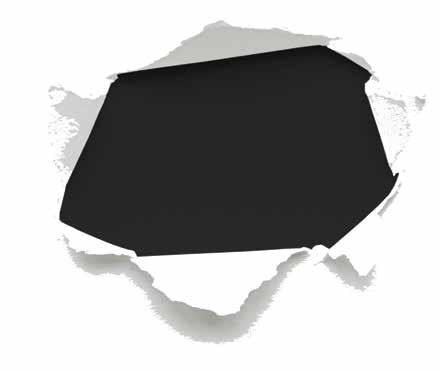
TIM 40th Anniversary Celebrations Culminate in Worship Service
CWM Caribbean Regional Assembly
Pacific Youth Intiative
Caribbean Youth Intiative
Member Church News
WCRC to open Ecumenical office in Rome
LWF Celebrates 75th Anniversary
CWM GS Speaks on Life-flourishing witness in a multi-faith context at Global Christian Forum
CWM GS brings greetings to UEM silver jubilee
WCRC-CWM Women in leadership roundtable
CWM Moderator urges youth to lead with transforming leadership at all African Youth Congress
November 2022
04
05
08
10
12
13
15
16
17
21
22
23
24
25
27
29
30
32
35
38
41
43
44
46
CONTENTS 02 02 FOREWORD
AT A GLANCE
VIEWPOINTS
Legacies of Slavery
Quamina’s imagined monologue with Onesimus
The Onesimus Project
Transformative Ecumenism
A Call to end Modern Slavery
RETROSPECT
Let there be flourishing Life for Seasonal Reflections
TAKE A LOOK
This issue of INSiGHT is specially dedicated to providing an in-depth overview of The Onesimus Project, its ongoing work, and its future direc�on. It comes with informa�on on various ac�vi�es of the CWM, news of the member churches and ecumenical organiza�ons.


Council for World Mission (CWM) has been in the process of addressing its legacies of slavery for the past three years. As it is already known, some of the missionaries sent by the London Missionary Society (LMS), the forebearer of the CWM, were involved in the slave trade, aiding the colonial rulers, and even owning the enslaved people, especially during the Trans-Atlan�c Slave Trade. Some of the mission prac�ces of the LMS ignored or were benefited by this evil system of enslaving humans and trading them for profit.
Reflec�ng on the history of the LMS and embarking upon the journey of transforma�on as CWM, we realize that the transforma�on history is not complete unless we address the legacies of slavery. Also, recognizing that the colonial slavery system has been mutated into various forms of modern-day slavery and
embedded into numerous structures of society, we realize that we need to address the modern slavery by systema�cally decolonizing the forms of educa�on that tend to preserve the systems of slavery. We also realized that alone, we cannot do this behemoth task and need the accompaniment of other ecumenical, missional as well as social organiza�ons through transforma�ve ecumenism. All these four areas of the project are comprehensively explained through the viewpoint ar�cles in this issue of INSiGHT.
In the first ar�cle, Anthony G. Reddie clearly explains, with the help of Jesus’ conversa�on with Pon�us Pilate, how the colonial framework of exploita�on and transatlan�c slavery emerged and how the Black theology influenced research funded by CWM has been commi�ed to cri�quing and challenging the legacies of slavery. In the second ar�cle, Michael Jagessar crea�vely and profoundly puts together an imagined conversa�on of brother Quamina with Paul reading the Onesimus story from the epistle to Philemon and uncovering various layers of emo�ons by crea�ng a sense of urge to highlight some of the issues before us, as well as the demands and the opportuni�es that the Onesimus Project offers.
FOREWORD NOVEMBER 2022 02
Roderick Hewi�, the chair of the Onesimus Project core group, provides an outline of the project’s four major areas of focus, explaining how the Legacies of Slavery project has been expanded into the Onesimus Project and the future plans. Together with this, the ar�cles of Deenabandhu Manchala, who explains about the Transforma�ve Ecumenism and how it is important in bringing the other ecumenical, missional and social organiza�ons, and peoples’ movements. Sudipta Singh, the CWM Deputy General Secretary-Programmes, explains in his ar�cle on a call to end modern-day slavery.
With all these ar�cles and informa�on, I truly hope that this issue of INSiGHT will serve as a reference to what the CWM has been doing and will be doing to address the issues of both legacies and modern-day slavery through the Onesimus Project. May the God of libera�on empower CWM’s struggle for the emancipa�on of all the people who have been systema�cally and structurally oppressed by the various forms of slavery!

 Rev. Dr Jooseop Keum General Secretary Council for World Mission
Rev. Dr Jooseop Keum General Secretary Council for World Mission
03
AT A GLANCE
COUNCIL FOR WORLD MISSION LAUNCHES THE ONESIMUS PROJECT COUNCIL FOR WORLD MISSION LAUNCHES THE ONESIMUS PROJECT
ouncil for World Mission (CWM) has launched The Onesimus Project (TOP) at Van der Kemp Memorial Church in Bethelsdorp, South Africa, on 23 August 2022, the United Na�ons Interna�onal Day for the Remembrance of the Slave Trade and its Aboli�on.

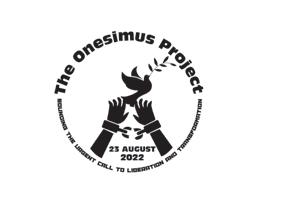
Over 500 people, including the local communi�es, members of the Uni�ng Presbyterian Church of Southern Africa (UPCSA), United Congrega�onal Church of Southern Africa (UCCSA), interna�onal guests, the Onesimus Project’s Core Group, and the members of the CWM Board of Directors, joined to hear the CWM’s act of confession and witness the launch of the Onesimus Project (TOP). In addi�on, hundreds of people joined the event online through a live stream (h�ps://youtu.be/OUFS5PNqUfo). The gathering witnessed CWM’s act of confession, a commitment to repara�ve ac�on, and a call to other churches and ecumenical and mission organisa�ons with similar legacies for just ac�on.
During his gree�ngs, the CWM General Secretary, Rev. Dr Jooseop Keum, thanked and welcomed all those present for par�cipa�ng in the historic event, especially the Bethelsdorp community for welcoming and allowing the CWM to launch the TOP in Bethelsdorp.
He highlighted that the CWM’s journey of transforma�on from its forebear London Missionary Society (LMS) is incomplete without addressing its historically racist mission understanding and prac�ce through its complicity with colonisa�on,
enslavement and racism. He men�oned, “The Onesimus Project will assist CWM in becoming self-reflexive in cri�cally addressing both historical and modern-day slavery, providing new perspec�ves and insights on discerning our mission of jus�ce today.”
He further emphasised that the Project’s four major areas of focus, Legacies of Slavery, modern-day slavery, educa�on for libera�on, and transforma�ve ecumenism, are to take the member churches through a journey of addressing not only the past legacies of slavery but also its modern forms that are strongly mutated and embedded into various structures of society. He highlighted that the systems set up by the ins�tu�ons of the post-colonial global North capitalise on vulnerable members of marginalised communi�es, and the racism and White supremacism which powered the colonial era remain as forceful today as ever.
Therefore, CWM aims to build ecumenical solidarity for TOP by bringing together ecumenical and missional organisa�ons and grassroots movements in a common mission to reject oppressive structures and speak truth to power.
CWM NEWS
05
Represen�ng the Bethelsdorp community, Chief Edmund Gaob Stuurman welcomed the event a�endees, thanked the CWM and the Board for their courage in embarking on this journey of self-reflec�on, and challenged them to stand on their commitment to just ac�on.

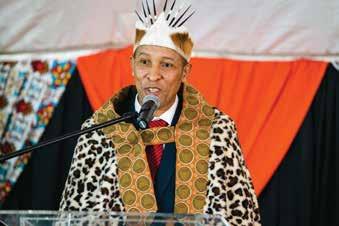
The Act of Confession reads, “The history of CWM highlights the power of the gospel to confront power. We can point to those who have resisted the systems of racism, enslavement and colonisa�on. We can point to those who sought to comfort those who have been so deeply harmed by such systems. But we also know that the LMS and its partners par�cipated in the building of systems of racism, enslavement and colonisa�on, which do such harm �ll today.
Thus, we gather to repent of the racism that poisoned our past and con�nues even in the life of CWM to pollute our present, our purpose, our witness, our finances, our rela�onships, our spirits, our bodies, our vision of humanity, our image of God…”
“land and life should be restored to the natives and indigenous communities not only in Africa but all over the world. He urged the CWM not to let the opportunity to restore the lives of African communities pass them by,”
A�er the gree�ngs from a representa�ve of the Mayor, CWM Moderator Rev. Lydia Neshangwe, joined by CWM Board of Directors Mrs Rose Wedderburn (Jamaica) and Elder Lim Kar Hor (Malaysia) led the act of confession and apology in a liturgical form.
A brief silence was observed to honour the lives of those who suffered under colonial oppression. Speaking to the gathering, the Chairperson of TOP core group, Rev. Dr Roderick Hewi�, echoed this opportunity for CWM to reflect on the effects of slavery on humanity and to mi�gate against its con�nuing impact. Reitera�ng CWM’s stand against the evil system of slavery and racism and acknowledging it, he said: “Our gathering is to remember what happened, that slave trade and its aboli�on should not be interpreted as an act of thanksgiving for those who have done some altruis�c service. Rather, today is a day of remembrance for those whose bones are sca�ered across the African con�nent and across the world.”
NOVEMBER 2022 06
Dr Hewi� went on to preach that freedom in Christ is a rediscovery of one’s humanity. This freedom allows us to see the divinity in humanity and calls us to live sacrificial lives struggling against all forms of oppression, which denies the fullness of life for people.

Rev. Neshangwe formally launched The Onesimus Project on behalf of the CWM Board and offered the Bethelsdorp Statement, and Rev Dr Fidon Mwombeki, General Secretary of All Africa Conference of Churches, sent the par�cipants out with a blessing, a fresh commitment to Christ’s gospel of libera�on and on transforma�on. The solemn event was interspersed with lively worship songs by choirs from CWM Africa member churches, UPCSA and UCCSA. Throughout the event, the slogan, “Release! Restore! Redeem!” became an emo�on that was intoned by the members.
The General Secretary, Dr Keum, called for a debriefing mee�ng with the par�cipants, during which the importance of the member churches embracing the vision of the TOP and a brief plan on taking the project forward was discussed. All the members agreed that the member churches should take an ac�ve part in iden�fying the modern forms of slavery and commi�ng themselves to struggle
against the unjust structures of the society for a just and life-flourishing community. The Onesimus Project’s core group will intensify their work in bringing solid proposals, including the proposals for the budget.
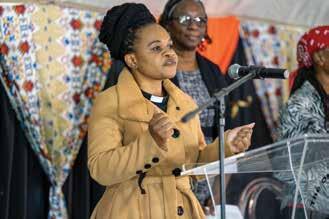
07
GREETINGS FROM THE CWM GENERAL SECRETARY DURING LAUNCH OF THE ONESIMUS PROJECT
based on the equal partnership of churches in mission. However, we realise that our journey of transforma�on is not complete unless we address the legacies of the LMS, whose understanding and prac�ce of mission was responsible for allowing racist a�tudes to take root globally. In the face of modern-day slavery, we also realise that our silence does not align with our commitment to jus�ce, mutuality and equality.
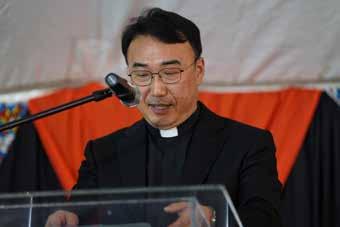
I bring warm gree�ngs to you from the Council for World Mission (CWM)!
At the outset, on behalf of the CWM family, I would like to thank all of you for joining us as we gather here on this United Na�ons Interna�onal Day for the Remembrance of the Slave Trade and its Aboli�on. I also would like to thank the leadership of UCCSA and UPCSA for hos�ng this event. I acknowledge the presence of Rev. Dr Fidon Mwombeki, the GS of AACC, Eugene Johnson. Mayor of Nelson Mandela Bay Metropolitan Municipality, for par�cipa�ng in this event as our honoured guests. My special thanks to the chiefs and all the members of the Bethelsdorp community for allowing us to launch the Onesimus Project (TOP) here.
Founded in 1803 by missionary Van der Kemp, Bethelsdorp is a historic loca�on. It is not only a tes�mony of the legacies of slavery but also a tes�mony of the struggle against slavery and the fight for social and economic equality. It is a land where na�ve missionaries like Cupido served God with solid commitment.
Today, it is a historic occasion for the CWM as we launch TOP and offer our act of confession for the sins of slavery that were part and parcel of the mission prac�ces of the London Missionary Society (LMS), our forebearer. On behalf of the CWM Board of Directors -our current governing body- I acknowledge and confess that some of the missionaries of LMS were involved in and benefited from the colonial slave trade, primarily through the transatlan�c slave trade route.
Through its forma�on in 1977, the CWM aimed to discon�nue the mission understanding and prac�ce of LMS and start anew with its commitment and ac�on
With this realisa�on, under the leadership of our former General Secretary, Rev. Dr Collin Cowan, we engaged in a long discernment process of envisioning a way forward to confess our sin and commit to repentant ac�on. It is vital for authen�c and transformed discipleship that the Chris�an community resists racism, owns its culpability, addresses the legacies of slavery including the ongoing prac�ce of enslavement, and challenges those who s�ll profit from this sin. Only in this way can we be true to Christ's gospel charge to “Restore! Release! Redeem!”
Therefore, TOP will help CWM not only to become self-reflexive by cri�cally engaging with the legacies of colonialism and racism but also to address the contemporary forms of slavery and oppressive structures that are being nurtured by the empire. This will undoubtedly provide new perspec�ves and insights for discerning our mission of jus�ce in the contemporary context.
That is why TOP will have four areas of focus:
The reason for expanding the project to modern-day slavery, educa�on for libera�on, and Transforma�ve Ecumenism is that we not only delve into past legacies of slavery but also address its modern forms that are strongly mutated and embedded into various structures of society. The systems set up by the ins�tu�ons of the post-colonial global North capitalise on vulnerable members of marginalised communi�es, and the racism and White supremacism which powered the colonial era remain as forceful today as ever. Human trafficking, sexual slavery, child soldiers
CWM NEWS
Dear brothers and sisters in Christ Jesus,
1 Legacies of Slavery 2 Modern-day Slavery 3 Education for liberation 4 Transformative Ecumenism NOVEMBER 2022 08
and labourers, vic�ms of interna�onal marriage trade, forced labour, etc., are some examples of modern slavery which we need to engage with.
It is important to transform our theological and Chris�an educa�on to facilitate empowerment and libera�on. We aim to revisit the educa�onal prac�ces employed by the missionaries during the colonial period to fulfil the colonial agendas. This way, we eradicate the memories of colonial legacies and liberate the communi�es through educa�on.
It is also important to bring together various ecumenical and missional organisa�ons as well as people's movements at the grassroots. It is to challenge those ins�tu�ons that lend their legi�macy to oppressive structures, to reject their neutrality in the face of injus�ce and aggression, and to provoke them to speak the truth to powers. Transforma�ve ecumenism will play a crea�ve role in building ecumenical solidarity for the Onesimus project.
Throughout human history, the issues of the slave system and human trade have been deeply connected to the development of empires. Unfortunately, the response of the churches and missionaries to the legacies of Slavery has been too li�le and too late, in my view. However, Mar�n Luther King Jr said, "The �me is always right to do what is right!" It is never too late to correct the past!
Therefore, this project is deeply missional in its very nature. To do what is right is a gospel mandate of Jesus. It is a search for the right rela�onship in mission rooted in the equal partnership of Triune God. We cannot speak of "partnership in mission" while keeping injus�ce in our midst. Jus�ce is impera�ve for unity, and it demands radical transforma�on. However, it is equally important to create a vision for bringing transforma�on and building a future rooted in jus�ce.
Therefore, TOP is all about:
Repen�ng for the silence in the face of the historic and con�nuing systemic racist exploita�on and enslavement of people
Making repara�on to empower those people and communi�es sinned against through racism and enslavement
Rejec�ng the historic and endemic privileges afforded by racism, economic exploita�on, and systemic commodifica�on
Rebuilding life-affirming rela�onships and communi�es which honour the interdependency of all crea�on
Challenging other ins�tu�ons with compromising history like ours to deliver repara�on, racial jus�ce, and equity
Crea�ng communi�es which resist racism and enslavement and honour the image of God in all people
Rising with those leading the work for repara�on and system change
I am glad to say that the members of the CWM Board of Directors are deeply commi�ed to the work of the Onesimus Project. The member churches, as the primary stakeholders of this project, will play a significant role in taking this project towards a Jubilee, a �me during which the covenant community of unity and peace is restored through the establishment of shalom, based upon God's jus�ce.
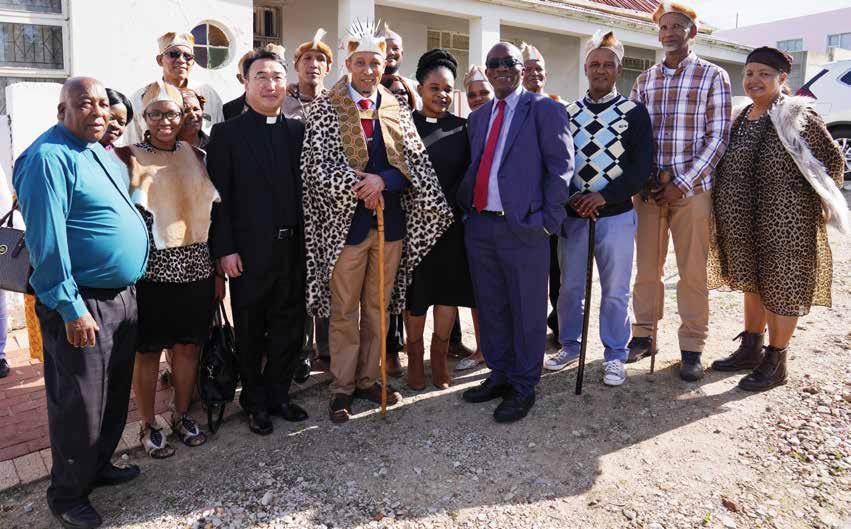
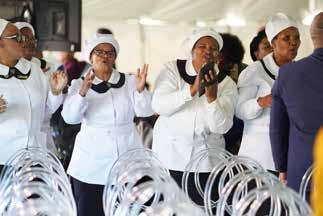
As I close, I thank Rev Kudzani Ndebele, GS of UCCSA, Rev Lungile Mpetsheni, GS of UPCSA, Rev. Sindiso Jele, and Ms Por�a, and all the local organising commi�ees as well as CWM staff for hos�ng this event and making all the arrangements.
May the Lord be with all of us as we embark upon this journey of transforma�on.
09
THE BETHELSDORP STATEMENT
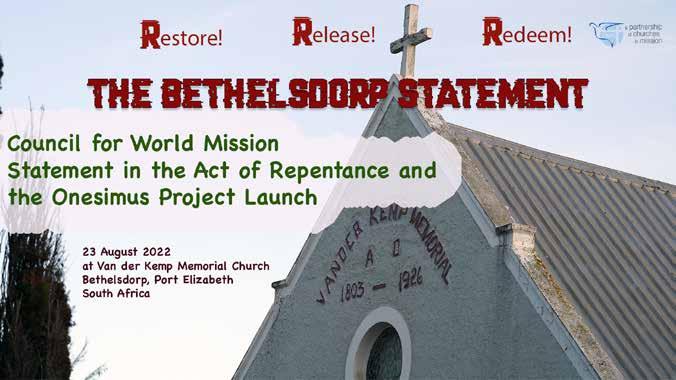
Council for World Mission Statement in the Act of Repentance and the Onesimus Project Launch August 23, 2022.
Background
The Council for World Mission is a global mission organisa�on with its roots in the UK’s colonial Chris�an history. It grew out of the London Missionary Society, founded in 1795, but was reborn from the decolonising Spirit of the 1970s. Since then, CWM has lived out its calling to sharing resources, people, and ideas in mission as equal partners commi�ed to life-flourishing community. But the hopes of the decolonial era have not been realised in full. The system which colonised and enslaved the global South, especially Africa and peoples of African descent in the diaspora, con�nues to exploit and to rob. The systems which stole land from indigenous people, indentured Indians, and Pacific Islanders con�nue to steal from their children, making them cap�ve to economic forces they cannot control. The Interna�onal Labour Organisa�on es�mates that as many as 40.3 million people are kept in modern-day slavery. The systems set up by the ins�tu�ons of the post-colonial global North capitalise on vulnerable members of marginalised communi�es, and the racism and supremacism which powered the colonial era remains as forceful today as ever.
CWM has come to see that these injus�ces are deeply rooted not just in the colonial era but in the missionary endeavour itself, complicit by its use of false theologies of race and civilisa�on to spur fundraising, recruitment, and ac�on. Our work on our archive shows how long
and how deeply LMS wove White supremacy and Afrophobia into its work and witness. Since its forma�on in 1977, the CWM has aimed to discon�nue the mission understanding and prac�ce of LMS and start anew with its commitment and ac�on based on the equal partnership of churches in mission. However, we realise that our journey of transforma�on is not complete unless we address and confess the legacies and persistent influence of the LMS, our forbearer, whose understanding and prac�ce of mission was responsible for allowing racist a�tudes to take root globally. We also realise, in the face of modern-day slavery, that our silence betrays our commitment to jus�ce, mutuality, and equality.
This realisa�on demands that we, as the CWM, confess our sin and commit to repentant ac�on through the Onesimus Project. It is vital for authen�c and transformed discipleship that the Chris�an community resists racism, owns its culpability, addresses the legacies of enslavement s�ll in our midst, including the ongoing prac�ce of enslavement, and challenges those who profit s�ll from this sin. Only in this way can we be true to Christ’s gospel charge to Restore! Release! Redeem!
Restore! Release! Redeem!
CWM NEWS NOVEMBER 2022 10
Our Act of Confession
CWM comes to Bethelsdorp, South Africa, to make its act of confession and commitment because it was one of the first mission sta�ons of LMS. Bethelsdorp was founded to pose a gospel challenge against the racist prac�ces of the colonial se�lers, and for a �me, it existed as a radical community where enslavement was banned and White and Black people lived freely together. This proved too radical for LMS and for the colonial powers; the community was dismantled in a familiar pa�ern of White Chris�an supremacism. But from this community, Black evangelists came forward who recognised in Jesus, not a White saviour bearing a European cultural hegemony but a Pales�nian Messiah proclaiming an an�-imperial vision of libera�on and the fullness of life for the oppressed. Their witness became the early seeds of libera�ve hope that laid the founda�ons for this na�on’s struggles against the sin of apartheid. We gather to recognise and rejoice in this.
Our Commitment
CWM commi�ed itself in 2019 to acts of apology, repentance, and repara�on for the legacies of slavery in our life. The CWM Board provided £10 million to enable this ini�a�ve. Now, in the Onesimus Project, it has outlined the key aspects of this reparatory commitment and ac�on. We seek to work with member churches and our partners to resist the ongoing evils of racism and modern-day slavery. The story of Onesimus challenges us to see that Chris�anity has been called since the beginning to fight against enslaving systems but has regularly been co-opted by the power of the empire to enslave others.
CWM gathers on Aug 23, 2022, the Interna�onal Day for the Remembrance of the Slave Trade and its Aboli�on, to repent, to repair these evils, and to offer there an act of apology to African and African-descended peoples for the sin of racism then and now.
Our Onesimus Covenant commits us to these ac�ons:
Repent for the silence in the face of the historic and con�nuing racist exploita�on and enslavement of people; Make repara�on to empower those peoples and communi�es sinned against through racism and enslavement;
Reject the historic and endemic privileges afforded by racism and the legacies of colonisa�on; Rebuild life-affirming rela�onships and communi�es which honour the interdependency of all crea�on; Challenge other ins�tu�ons with a compromising history like ours to deliver repara�on, racial jus�ce, and equity; Create communi�es that resist racism and enslavement, honouring the image of God in all people; Arise with those leading the work for repara�on and system change.
–taken from the CWM Onesimus Covenant
Our Calls
CWM is not alone in having these legacies in its life, and we call on other churches and mission movements with similar legacies to do the same: they too must repent and make repara�on. The legacies of slavery and the profits of modern-day slavery challenge the followers of Christ, who began by confron�ng imperial profit and violence, to ensure they are first in seeking to Restore! Release! Redeem!
We call on the former colonial powers and structures whose deep debt to the global South con�nues to grow because of their failure to make repara�on for the wrongs of four hundred years under colonisa�on and for the crea�on of financial and economic systems that preserve and prosper their profit and power. The Onesimus Project will move CWM to confront and challenge these powers and ins�tu�ons, whose power and profit are the reasons Christ stands against them, demanding, Restore! Release! Redeem!
Having heard from those who live daily with the legacies of slavery, we call on our ecumenical and mission partners, and we call on the power systems, ins�tu�ons, na�ons, and corpora�ons who have grown out of the profits of enslavement to Restore! Release! Redeem!
Racism and slavery are sin. Words are not enough. Apologies are not enough. Only change is enough.
Restore! Release! Redeem!
11
TRAINING IN MISSION 40TH ANNIVERSARY CELEBRATIONS CULMINATE IN WORSHIP SERVICE
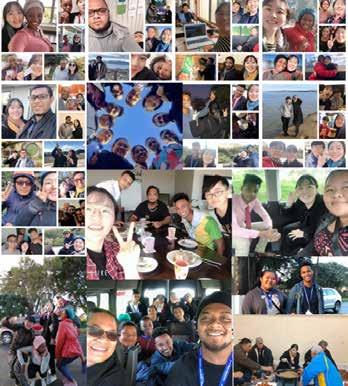
ormer Training in Mission (TIM) par�cipants, partners, church leaders and staff joined CWM’s TIM40 celebratory service held on Zoom on 24 September, 6PM Singapore Time.
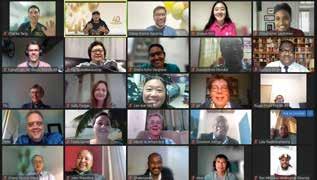

This was a culmina�on of a series of virtual roundtable events held since last September to commemorate the 40th anniversary of TIM Programme.
The worship and thanksgiving service began with a reading led by Goodwin Zainga (TIM 1995), Churches of Christ in Malawi (CCM) based on Acts 2:17, declaring that they were gathering as people touched by the Spirit and called to doing jus�ce, challenging systems, and building rela�onships, with an “outpouring of joy and determina�on for life to flourish in Christ’s way”.
The gathering then heard from the CWM General Secretary, Rev. Dr Jooseop Keum who affirmed that TIM is one of the most impac�ul and longest-serving training programmes in the ecumenical world, having trained over 400 young people who are mostly serving as leaders in churches, ecumenical organisa�ons and theological ins�tu�ons today, and a �me of prayer led by Jooeun Kim (TIM 2019) in Korean and English.
This was followed by reflec�ons by Lim Sok Yee (TIM 2007), Gereja Presbyterian Malaysia (GPM), who shared that TIM was an eye-opening, life-changing experience where she “understood the meaning of mission in a more wholesome way”. She returned with a spark lit within that guided her to con�nue to lead mission teams to China annually before she became a full-�me missionary in China in 2013.
Another poignant reflec�on was shared by Christopher Latchman (TIM 2019), Guyana Congrega�onal Union (GCU) who a�ested to how the TIM Programme presented new concepts for most of them that “started and deepened their understanding of how poisonous and stagnant their theology can be” and ignited their passion to see a just, free and safe world for all.
Witnessing the seeds sown in former par�cipants during their s�nts in the TIM programme led to an “Out-Pouring” of blessing on TIM40, before a meaningful �me of prayer and sharing. In this next programme segment, a�endees were placed in chat rooms to connect and share with former TIM par�cipants, before they returned for a prayer of dedica�on where they commi�ed to seeking peace and affirming jus�ce for all, and pursue God’s promise of life with dignity and worth for those suffering.
The event drew to a close a�er CWM Deputy General Secretary – Programmes, Dr Sudipta Singh commissioned them to go forth into the world in the power of the Spirit, and be unshakeable as they give themselves to the work of the Lord, knowing that their efforts will never be rendered naught.
CWM NEWS NOVEMBER 2022 12
CWM CARIBBEAN REGIONAL ASSEMBLY: RISE TO LIFE – BUILDING LIFE-FLOURISHING COMMUNITIES
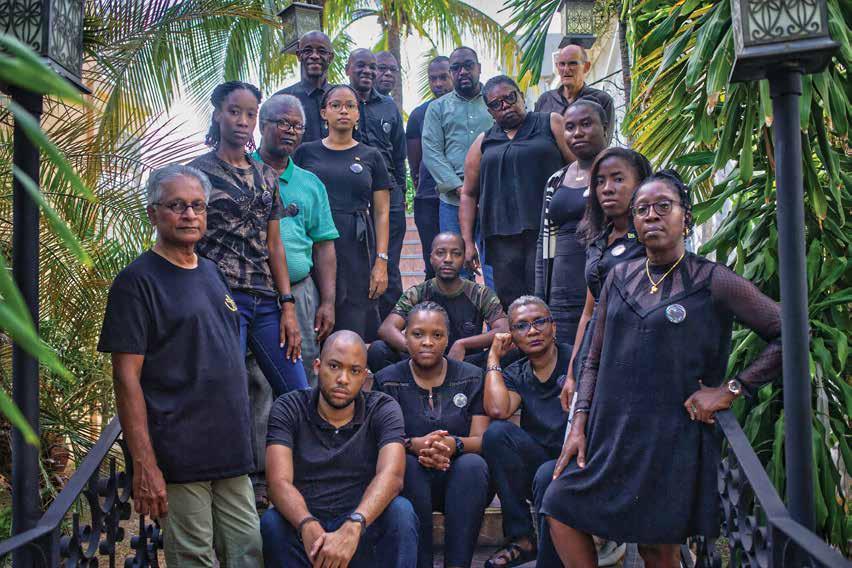
elegates from the member churches of CWM Caribbean, Guyana Congrega�onal Union (GCU) and the United Church in Jamaica and the Cayman Islands (UCJCI), along with our ecumenical partner CANACOM (Caribbean and North America Council for Mission), Board Members, Partners in Mission, and guests met in Kingston, Jamaica for the CWM Caribbean Regional Assembly. From 18-22 September, 19 par�cipants, staff and missiological reflectors engaged with the theme Rise to Life – Building Life Flourishing Communities through worship, bible studies, various presenta�ons, conversa�ons, visits, fellowship and much more.
The Assembly was blessed with two opening gree�ngs from CWM General Secretary Revd Dr Jooseop Keum and UCJCI Moderator Rt. Rev Gary Harriot offering helpful insights and key ques�ons for the gathering to reflect upon: how can we reclaim mission as emancipatory and transforma�ve and what kind of missional ac�on do we need to put in place to affirm life in all its fullness for all? Given the urgency of contextual life-denying reali�es in the Caribbean, how must we understand and live in the reality of the Christ, who in the face of death and hopelessness said, “I am the resurrec�on and the life”? What does it mean for a church to say we are resurrec�on people?
Each day of the gathering had an inten�onal focus: Life Flourishing – liberation and liberating – gender justice-capital and economic wellbeing, which par�cipants explored, wrestled with, dug-deeper into, prayed, and reflected together through specially cra�ed worship and interac�ve bible studies. They also joined three local UCJCI congrega�ons at worship and banquet worship with a �mely sermon from UCJCI General Secretary Rev. Norbert Stephens.
Through digital media inputs on community presence, engagement and interven�ons by churches were received from the Philippines, South Africa and Britain, together with live contribu�ons from partners in mission, CANACOM and the Caribbean member churches on the life flourishing projects they are involved in. Working in groups par�cipants iden�fied three collabora�ve life-flourishing ini�a�ves they would like to explore with their communi�es upon their return. There was also input from the Child Protec�on and Family Services in Jamaica and our site visit to experience the excellent work of Children’s First and to see first-hand an aspect of their work with children at Dupont Primary School.
In Solidarity with Thursdays in Black
13
CWM NEWS
Linne�e Vassell, Gender Jus�ce Advocate, Community Campaigner, Lecturer and member of UCJCI facilitated the Regional Assembly’s engagement on gender-jus�ce, s�rring lively table conversa�ons and a commitment towards greater inten�onal work among member churches and churches in the region.

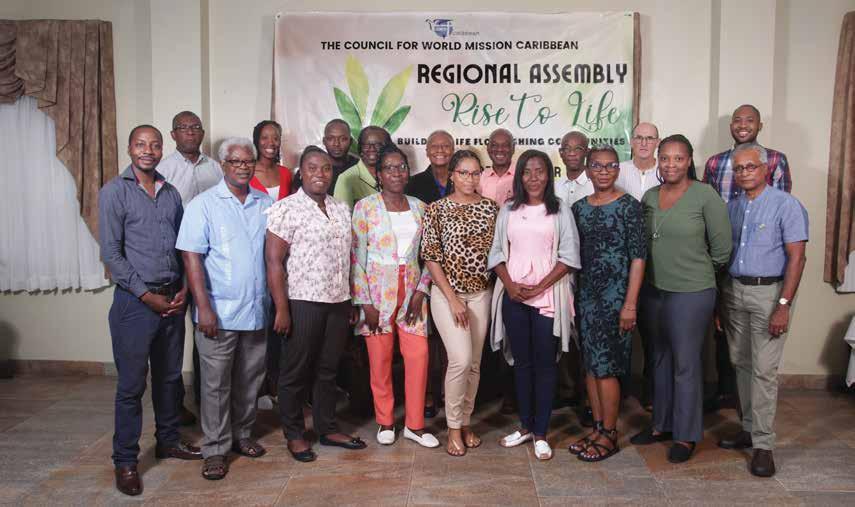

Theological-missiological reflector Rev. Marvia Lawes helped the gathering to pull the threads of our conversa�ons together, offered challenging ques�ons, and iden�fied the areas of work CWM Regional and global work should pay closer a�en�on to (gender jus�ce, racial jus�ce and climate jus�ce).
Having noted equal representa�on of female and male a�endees, as well as younger and older adults, Rev. Marvia Lawes summed up the gathering in these words:
“Through stirring worship, disturbing and insightful bible studies, we the engaged participants of the Caribbean Regional Assembly of the Council for World Mission wrestled with tough texts and hard lessons, confessed our squandering of resources and missed opportunities, celebrated testimonies of faithful stewardship, and prayerfully recommitted ourselves to consistent prayerful reflection and life flourishing action.”
The CWM Caribbean Regional Assembly was inten�onally interac�ve, conversa�onal and dialogical, working on the premise that some of the assets towards building life-flourishing communi�es were already in the room of the gathering. This approach resulted in an interac�ve, vibrant, affirming, challenging, resourced, spirit filled and discerning Regional Assembly.
NOVEMBER 2022 14
PACIFIC YOUTH INITIATIVE: SHARING THEIR STORIES AND RISING TO LIFE

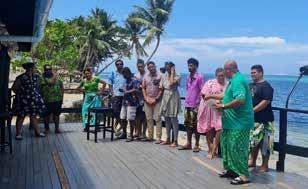
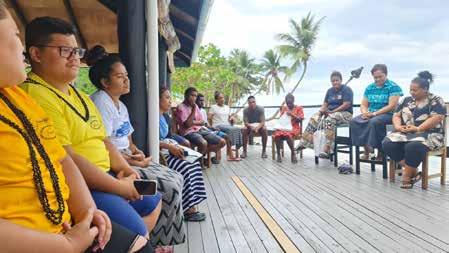
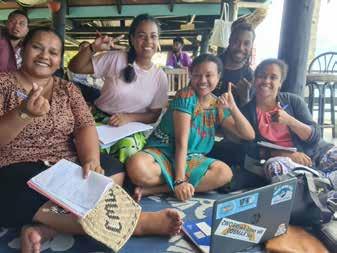
he recent CWM Pacific Youth Ini�a�ve that started on 3 October was a safe space for the young people to share their stories and challenges and in turn be challenged, empowered and mo�vated in Coral Coast, Fiji. On the first day, the par�cipants reflected on their journey through COVID-19 and the challenges faced by the youths including panic and fear, contrac�ng COVID-19, lockdowns, loss of jobs, being away from families, and studies and work being affected.
Discussing the perspec�ve of each person in the biblical story of the Good Samaritan (Luke 10:27-37) during the opening devo�on allowed the youths to realize that as church people, they some�mes ignore issues around them and that it is important to lend a helping hand even if the one in need is different from them. Upon reflec�on, the young people said that the church has an important role to play in such challenging �mes as they work towards rising to life from the pandemic.
On Tuesday, par�cipants studied Scripture in Genesis 16 and 21 and discussed how Sarah and Hagar, as mothers protected their children. As they con�nued this discussion, it led them into the sessions on Child Protec�on and Safeguarding led by the CWM Pacific Programme Associate, Fuata Varea-Singh. Par�cipants discussed what child protec�on means to them, child protec�on policies in their churches, and what they can do to protect children. A�er group discussions, they read and discussed Scripture from 1 Kings 3:16-28, Exodus 2:1-10, and Luke 15:11-32. The eye-opening session allowed youth to express themselves by sharing stories of child abuse they had gone through and their hope that churches can draw up child protec�ons policies and put them into ac�on.
The third day of the programme had the youths travel to Suva, to visit the HART Village in Narere, which houses single mothers, widows, and families in need. The group sang songs, led a devo�on session, and shared a meal with the families. The trip to the village helped the youth par�cipants become more aware of the issues people face and the help that is needed, and understand that selfless love is needed to render assistance to the people around them.
The last two days of the Youth Ini�a�ve programme included presenta�ons and learning sessions on deep sea mining, ecological stewardship, a beach clean-up, and mangrove plan�ng. The youth par�cipants in the programme represented CWM member churches in the Pacific region and they were joined by five Kanaky (New Caledonian) youth from Pacific Theological College (PTC), two youths from Kioa (EKT) who are se�lers in that island and two youths from the Methodist Church of Fiji and Rotuma. At the close of the event, they issued a statement acknowledging their stewardship of God’s crea�on, denouncing deep-sea mining, and re-affirmed their spirit of gathering in solidarity, accountability and collabora�on, among others.
CWM NEWS 15
CARIBBEAN YOUTH INITIATIVE: RISING TO LIFE CARIBBEAN YOUTH INITIATIVE: RISING TO LIFE
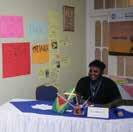
wenty-three (23) youths, young adults and resource persons gathered in Kingston, Jamaica for the Caribbean Youth Ini�a�ve from 13-16 October. In partnership with the Caribbean and North America Council for Mission (CANACOM), the CWM Caribbean Region staff worked with a small planning group to plan and organize the event. Par�cipants came from the Cayman Islands, Guyana, Suriname, Trinidad and Tobago, Jamaica, and Britain with our par�cipant from the Dominican Republic unable to join the event. Par�cipants gathered around the CWM theme ‘Rising to Life’ exploring ‘LIFE’ in terms of Leadership, Iden��es, Faithfulness and Empowerment. The methodology deployed was interac�ve and
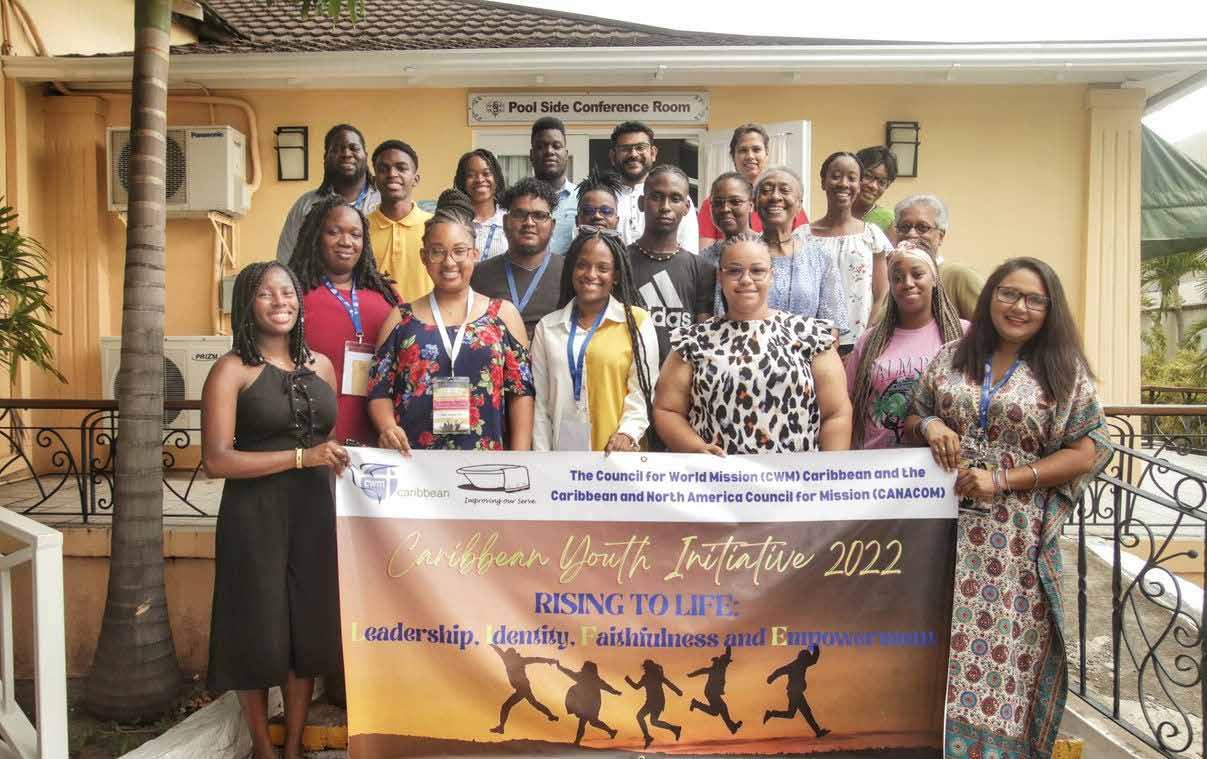
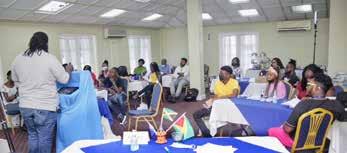
musician – youth workers – teachers, and more. Exci�ng bible studies and crea�ve worship focused on leadership, iden�ty and belonging while facilitated input sessions deployed drama and other social media means to explore marginal bible characters and their leadership styles; a variety of methods to explore iden�ty and belonging; and insights into doing theological reflec�ons drawing on a wide range of resources. Our theological reflector used both prac�cal and helpful tools to facilitate grounded reflec�ons and conversa�ons from the par�cipants. And as part of the working outcomes, the group iden�fied a number of follow items, expressed their commitment to cascading the learning points, and came up with a plan of ac�on.
included table/group work, input through facilita�on, visits, arts, music, drama, worship and many opportuni�es for ongoing conversa�on through social gatherings and networking. The opening evening of ge�ng to know each other, through games and crea�ve depic�ons was a brilliant introduc�on of the par�cipants, their gi�ings, and their roles in respec�ve churches. The range included: students – den�st –ministerial students – sugar analyst – journalist –
In the open evalua�on and summing up par�cipants expressed their delight on the �mely nature of the gathering; the well-thought-out programme and relevant theme; and expressed both the energizing nature of the event and their commitment to con�nue working in their own contexts to encourage the work of youths in the life of their churches. The event provided a safe, challenging, encouraging, and refreshing space for the young par�cipants.
CWM NEWS NOVEMBER 2022 16
PACIFIC
Etare�a Porotetani Maohi (EPM) church leader Rev. Francois Pihaatae was elected as President of the Pacific Region of the World Council of Churches (WCC) during its Assembly on 5 September in Karlsruhe, Germany. The WCC Assembly is the highest governing body of the WCC, and normally meets every eight years.
The EPM President was among eight new presidents elected to fulfil the role of promo�ng ecumenism and interpre�ng the work of the WCC in their respec�ve regions.
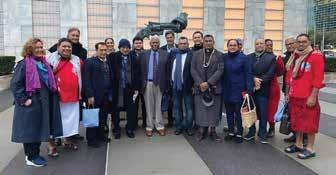
A former Pacific Conference of Churches (PCC) General Secretary, Rev. Pihaatae is an advocate for self-determina�on and human dignity of West Papua, Maohi Nui (French Polynesia) and Kanaky, and repara�on for vic�ms of nuclear tes�ng in the Pacific. Other pressing areas of concerns in the Pacific are climate jus�ce and rising sea levels on lowline atolls, and the grave impact of seabed mining by interna�onal companies on the livelihoods of the Pacific people.
Etare�a Porotetani Maohi (EPM) sent a delega�on to the United Na�ons (UN) 4th Commi�ee on Decolonisa�on on 6 October as part of its “Waves of Destruc�on: Nuclear imperialism and an�-nuclear protest in Maohi Nui” project.
Several leaders of CWM member churches were elected to the WCC Central Commi�ee, as follows:
Rev. Rupert HAMBIRA, (United Congrega�onal Church of Southern Africa)
Mr Fernandas RATHINA RAJA (Church of South India)
Mrs Kimberly VOADEN (Ecumenical Disability Advocates Network), United Church in Jamaica and Cayman Islands (UCJCI)
Rev. Karin VAN DEN BROEKE (Protestantse Kerk in Nederland)
Rev. Sarah MOORE (United Reformed Church) Rev. Ka-Fai WONG (Hong Kong Council of the Church of Christ in China)
Rev. Dr Shu-Pin CHIU (Presbyterian Church in Taiwan)
Rev. Armstrong PITAKAJI (United Church in the Solomon Islands)
Rev. Elder Tunumoso SOLIOLA IOSIA (Congrega�onal Chris�an Church Samoa)
Speaking in his capacity as Pacific President of World Council of Churches, Rev. Francois Pihaatae highlighted the plight of Maohi Nui (French Polynesia) people suffering from the a�er-effects of French nuclear tes�ng, calling it a “silent genocide”.
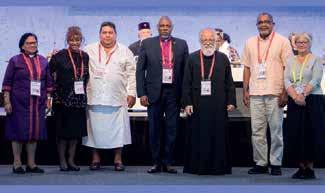

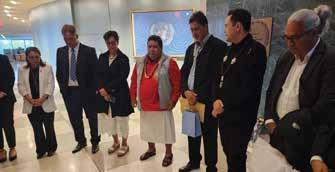
Rev. Pihaatae had previously tabled pe��ons at the United Na�ons (UN) 4th Commi�ee for Decolonisa�on and denuclearisa�on issues in October 2019 as part of an EPM delega�on, and appealed to the UN Human Rights Commission on behalf of the people affected by French nuclear tes�ng in the Maohi Nui islands.
To date, more than 30,000 including newborn babies have succumbed to cancer, and recent research indicates that the en�re Maohi Nui has been contaminated, he added. The consequences of nuclear tests performed above ground and underground in the Moruroa and Fangataufa atolls also exacted a toll on the land and sea.
In addi�on, Rev. Pihaatae claimed that the Pacific people will suffer when France builds a new geopoli�cal presence in the Indo-Pacific, and that French President Emmanuel Macron’s declara�on on the mari�me exclusive zone of 5 million km2 indicates the inten�on to exploit underwater resources. Finally, he drew the Commi�ee’s a�en�on to the climate emergency, which “is already a reality for the Pacific peoples”.
EPM delegation appeals to United Nations (UN) Committee for victims of French nuclear testing
MEMBER
CHURCH NEWS
17
Etaretia Porotetani Maohi (EPM) church leader elected as President of the Pacific Region of the World Council of Churches (WCC)
South Asia
Europe
Church of South India (CSI) recently celebrated its 75th anniversary, a�ended by thousands of representa�ves from its 24 dioceses, civic and government leaders and more. Only a few weeks a�er the end of colonial rule, the church was founded as a “United and Uni�ng Church”—an expression of the dawn of a new era. Since then, CSI has established several educa�onal ins�tu�ons and hospitals, and contributed towards ecumenical leadership in the region, communal harmony and secularism in India. For many years, CSI has been commi�ed to environmental protec�on and to comba�ng climate change, which affects the impoverished in India significantly.
During the event with over 10,000 in a�endance, CSI General Secretary Rev. C. Fernandas Raja called on the Indian government to end discrimina�on against Chris�ans in India. CSI has more than 4.5 million members today, with two thirds of them being Dalits, so-called “untouchables” or “casteless”. The CSI General Secretary said, “We observe with great concern that the cons�tu�onal rights of the Dalits and other minori�es in India are being increasingly undermined by the na�onalist Hindu government. We demand full legal recogni�on of Chris�an Dalits.”
Rev. Dr Jooseop Keum paid his visit to the United Reformed Church (URC)’s Church House as the Council for World Mission (CWM) General Secretary on 4 October, where he was warmly welcomed and received by URC General Secretary Rev. Dr John Bradbury; Deputy General Secretary, Mission Rev. Philip Brooks; and Secretary for Global and Intercultural Ministries Ms Karen Campbell.
The member church celebrates 50 years since its incep�on as a United Church this year, following the theme “Commemorate the Past, Celebrate the Now and Create the Future”. A series of celebratory events had been in the pipeline for close to three years, including local ecumenical projects, and missional partnerships. In fact, one third of its local churches are Local Ecumenical Partnerships (LEP), and URC sees its voca�on as bearing witness to the impossible things that God has done, such as uni�ng two churches with vastly different tradi�ons in 1972, and sustaining an ecumenical vision of something far beyond who it is.
Among the Jubilee celebra�ons were a North-Western Synod-wide ini�a�ve to plant 500 trees across the jubilee year and par�cipa�ng URC churches which made a weekly pilgrimage to fellow URC churches along the North Wales coast.
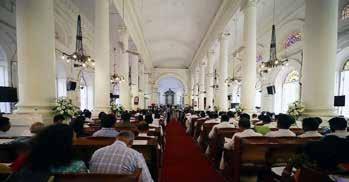
As part of the anniversary celebra�ons, the CSI also hosted an interna�onal Mission Consulta�on themed “Life Affirming Mission of God: Towards Building Living Communi�es” from 24-26 September in Chennai, India.

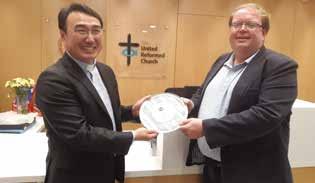
URC and CWM share historical �es* and have collaborated on several events such as hos�ng a CWM Board mee�ng (2017) and much more. Unfortunately, URC’s Jubilee events were postponed due to unexpected rail strikes. Dr Keum, accompanied by CWM Mission Secretary Rev. Dr Michael Jagessar, encouraged the church leadership considering this postponement, and presented them with a specially cra�ed 50th Anniversary memento on behalf of CWM. The General Secretaries and colleagues exchanged gree�ngs, shared updates on current pieces of key

Church of South India celebrates 75th anniversary, calls for an end to discrimination against the casteless
CWM General Secretary’s visit to URC for its Jubilee
Image via ems-online.org NOVEMBER 2022 18
work, exchanged insights on missional and ecumenical challenges and developments, and affirmed the importance of the work of CWM, its member churches and ecumenical partners towards full and flourishing life for all.
*URC was formed in 1972 when the Presbyterian Church of England joined with the Congregational Church of England and Wales (a constituent body of CCWM). In the following year, CCWM became Council for World Mission (Congregational and Reformed), and in 1977, CWM in its present form was inaugurated at a service in City Temple, London.
local churches in Groningen and its surroundings have also stepped in by conver�ng its buildings into emergency shelters, said Dr Reuver. Through the “De Thuisgevers” project in Kampen, the church makes housing available to status holders (those who have received their residence permit) for six months, so that they can build a life in the place where the civil municipality eventually provides a permanent home.
In addi�on to its care for refugee children in Greece, Kerk in Ac�e supports several projects for undocumented migrants, especially in the parishes of large ci�es. Many are labour migrants, or have remained a�er a failed asylum procedure, and they are some�mes assisted in a safe return to their country of origin.
URC Minister Rev. Dr Susan Durber was elected as President of the European Region of the World Council of Churches (WCC) during its Assembly on 5 September in Karlsruhe, Germany. Dr Durber’s first encounter with WCC was as a young theologian a�ending the World Conference on Faith and Order in San�ago da Compostela, and a few years later, a consulta�on for younger theologians in Turku, Finland.
“This new role gives me a privileged opportunity to meet with people among different churches and to speak for an ecumenism that is grounded in rela�onships and in shared faith, that listens to the voices of all the people and that is commi�ed to jus�ce, peace and the healing of crea�on,” said Dr Durber, who had just stepped down as the WCC’s Faith & Order Moderator, and was a former Principal of Westminster College in Cambridge and Theological Advisor for Chris�an Aid.
Caribbean
The United Church in Jamaica and the Cayman Islands (UCJCI) celebrates 100th anniversary of Pringle Home for Children
Protestant Church in
the Netherlands (PKN) General
Secretary’s message on PKN’s work in aid of refugees

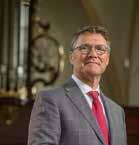
In heeding the biblical call to love strangers and to do jus�ce, many members of Protestant Church in the Netherlands (PKN) have opened their hearts and homes to those fleeing Ukraine, said PKN General Secretary Rev. Dr. Rene de Reuver in his recent message. Through Kerk in Ac�e, the diaconal programme of PKN provides financial support for local projects in aid of refugees and displaced persons, such as providing language services, distribu�ng clothes, and helping refugees integrate into a neighbourhood or village.

With Ter Apel, the Netherlands’ main recep�on centre for asylum seekers reaching its capacity limit,
For the past century, The United Church in Jamaica and the Cayman Islands (UCJCI) has embraced children-at-risk through its ministry of Pringle Home for Children, where individual cases arrive through Jamaica’s child protec�on system.
With the aim to develop faith, restore hope and transform the lives of hur�ng children in the Pringle Home, their holis�c development is facilitated by professional interven�on in counselling, social skills training, educa�on and recrea�on.
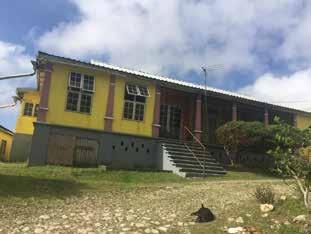
URC minister elected as President of the European Region of WCC
19
The charges are also nurtured spiritually, and integrated into the life of the Church. In addi�on, they are involved in farming for sustenance and for sale, joining employed farm hands in plan�ng crops and rearing livestock.
Africa
United Congregational Church of Southern Africa (UCCSA) Assembly
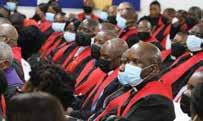

United Church of Zambia (UCZ) Trinity congregation in Lusaka constructs new church building
The United Church of Zambia (UCZ) Trinity Congrega�on in Lusaka Central embarked on a two-year project building a two-storey church building in September 2022 to cater to an increasing church membership. With the wings of the old structure and the Manse demolished, the new building is projected to accommodate 2,000 members, up from its current physical capacity of 400 members.
“The remaining part of (the) old structure will be preserved as part of the na�onal heritage,” said Rev. Emmanuel Bwalya, Trinity Congrega�on Minister in Charge.
The 41st Assembly of the United Congrega�onal Church of Southern Africa (UCCSA) was held on the theme “Hope and Healing: Fron�ers in Mission towards Life-Flourishing Communi�es” on 22 September, at Trinity Congrega�onal Church in Gaborone, Botswana. Hosted by the UCCSA Synod of Botswana, the Assembly is the highest decision making body of the church, and brought together delegates from the 5 countries that make up the UCCSA – Botswana, Mozambique, Namibia, South Africa and Zimbabwe.

During the keynote address by CWM General Secretary, they were inspired by the words of Allan Boesak, that hope teaches us the language of life in which we express our longing for a life of human flourishing that can li� us out of despair, and empower us to find the libera�ng and hope-giving God. Dr Keum reminded UCCSA members that God’s calling for them as transforming disciples is to seek alterna�ve values, ways of life, and communi�es, to reveal shalom in God’s kingdom on earth by the power of the Holy Spirit.
During the event, Dr Keum conducted Holy Communion and received the UCCSA Jus�ce and Peace Award, which is given to an ins�tu�on or individual who are deemed to have dis�nguished themselves as envoys of jus�ce and peace in their socie�es.
During the homily on “Reaffirming the Place of Divine Encounter”, UCZ General Secretary, Rev. Chipasha Mubaba encouraged church members to view this project as an opportunity to connect with God, while Board Chairman for the UCZ Chimwemwe Radio Sta�on Mr Cephas Katongo reminded them to embrace evangelism, spiritual growth, infrastructure development as integral to church development.
NOVEMBER 2022 20
WCRC TO OPEN ECUMENICAL OFFICE IN ROME


he World Communion of Reformed Churches (WCRC) will be opening an ecumenical office in Rome, Italy in 2023, in partnership with the Waldensian Evangelical Church and the Church of Scotland to strengthen its ecumenical commitment and par�cipate more fully in the vibrant, important ecumenical discussions held in Rome.
“Today as never before, we are called as churches to rekindle the spirit of ecumenism in the life of the church worldwide, against any spirit of distancing. As Chris�an churches sharing a common confession of Christ as Lord, we are called to work together towards making visible the unity that Christ has already given to us,” said Rev. Najla Kassab, WCRC president.
Created in the spirit of strong coopera�on, the Office will maintain the link between the Reformed churches and their ecumenical partners in Rome and present significant Reformed ini�a�ves to the ecumenical community of the city, while maintaining its commitment to peace and jus�ce, added Claudio Pasquet, a pastor in the Waldensian Evangelical Church and member of the WCRC Execu�ve Commi�ee.
The Waldensian Church will provide the physical space for the office while the Church of Scotland will provide the staff person, whose �me will be split between the ecumenical office and pastoring St. Andrew’s Church in Rome.
ECUMENICAL NEWS
21
Image by WCRC
ECUMENICAL NEWS
LUTHERAN WORLD FEDERATION CELEBRATES 75TH ANNIVERSARY

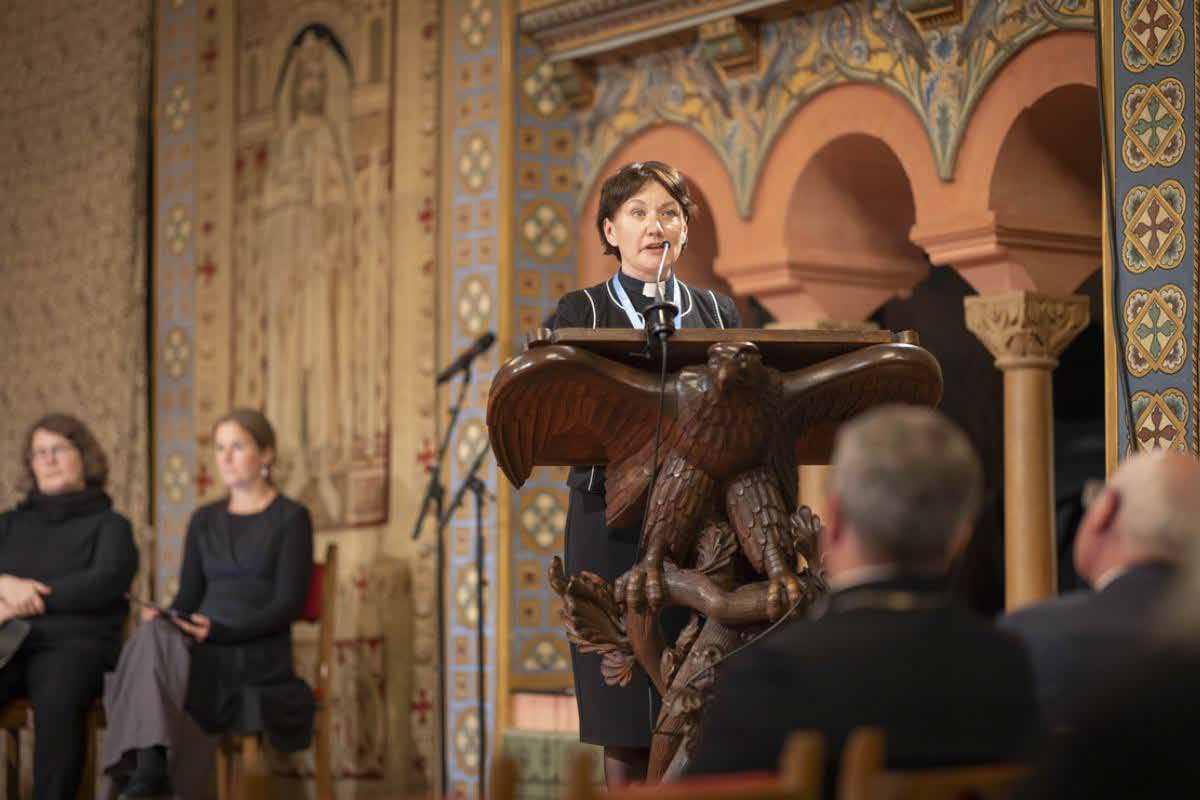
The German Na�onal Commi�ee (GNC), which was founded a few months a�er The Lutheran World Federa�on, marked its 75th anniversary at the historic Wartburg Castle in Eisenach, Germany on 7 October. The celebra�on was a�ended by guests from the church, poli�cs and society, par�cipants of the Church Leaders’ Consulta�on of the Central and Western Europe Region, and more.
During the LWF General Secretary’s address, Rev. Anne Burghardt explained the LWF’s four pillars - service to those in need; joint efforts in theology; joint ecumenical efforts; and common ini�a�ves in mission - star�ng from its founding years and their relevance today. For the past seven decades, LWF has constantly strived for “communion despite the cultural, theological and poli�cal plurality that the member churches bring with them”, added Klaus Fitschen, Chair of the Historical Commission of the GNC/LWF during the event.
LWF, together with ecumenical partners Council for World Mission (CWM), World Council of Churches (WCC) and World Communion of Reformed Churches (WCRC), have sought to develop churches’ competencies in economics and strengthen their voice on global economics through the Ecumenical School on Governance, Economics and Management (GEM) for an Economy of Life. For several years, this programme within the New Interna�onal Financial and Economic Architecture (NIFEA) project has endeavoured to build economic literacy in churches by equipping par�cipants with the tools and languages to effec�vely advocate for urgent transforma�ons in the global financial and economic sector.
NOVEMBER 2022 22
LWF General Secretary Anne Burghardt during her address at the celebrations of the 75th anniversary of the GNC/LWF. Photo: TSK/Paul-Philipp Braun
CWM General Secretary Rev. Dr Jooseop Keum delivered a speech on “Lifeflourishing Witness in a Multi-faith Context” at the Global Christian Forum (GCF) held on 14-17 October in Seoul, which gathers Christian leaders from diverse traditions and regions to meet on equal ground and mutual respect to address together the common challenges for the unity of the global churches.
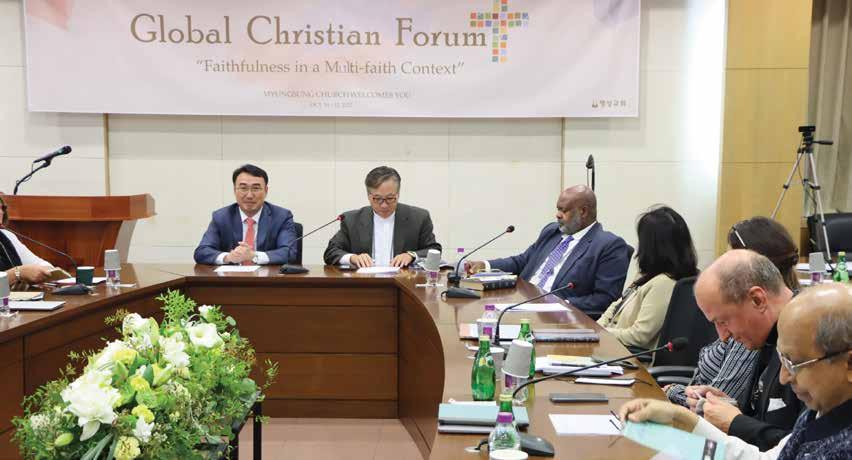
The Global Chris�an Forum (GCF) is a unique gathering of global Chris�an churches and organisa�ons bringing together all the major streams of world Chris�anity. All the tradi�ons in the global Chris�an family are present within the GCF, including: African Ins�tuted, Anglican, Catholic, Charisma�c, Evangelical, Orthodox, Pentecostal, and Protestant, as well as mega churches, migrant churches, and contempla�ve communi�es.
In his speech, he remarked that the ecumenical movement is wider than the unity of different Chris�an tradi�ons, and Chris�ans should include and work together with people from other faiths towards fullness of life for all crea�on, especially during a �me of rising global demand for interfaith encounters.
With God’s mission entrusted to the church, the CWM General Secretary emphasized that to discern and discover vital ac�on the Church should undertake in the current post-pandemic,
war-stricken world, we should engage in mission as a prophe�c dialogue. This refers to open, genuine, and Spirit-led dialogue in the church and building authen�c rela�onships with those we minister to.
Drawing on the familiar analogy of God being on top of a mountain with many pathways leading to the truth, he asked, “are we (religions) all climbing the same mountain?” and shared that according to Mark Heim, “we are climbing different mountains, and the truths that could be found on the top are all not all the same”.
To make the journey from interfaith dialogue to interfaith coopera�on, he proposed a “pilgrimage of climbing down from the mountain to meet, listen, dialogue and work for and with the people”, for it is in the valley where we can meet people of other faiths, live in a community and live out the truth. Explaining that the direc�on of the missionary movement is to descend to the valley rather than a mountain ascent, he said: “An authen�c missionary journey in interfaith dialogue can be achieved when we follow this direc�on of God’s missionary journey from heaven to earth, Jesus’ journey from mountain to valley”.
As disciples of Jesus Christ and co-workers with religious and non-religious people for God’s glorious, salvific plan for all, our missionary mandate is as servants and messengers preparing the feast of life and invi�ng all humanity to this fiesta in the community of the valley.
He concluded by reitera�ng the need to re-introduce this life-centred prophe�c dialogue in envisioning future ecumenism and mission, and to work proac�vely with people of other faiths and of secular society.
NEWS CWM GENERAL SECRETARY SPEAKS ON LIFE-FLOURISHING WITNESS IN A MULTI-FAITH CONTEXT AT GLOBAL CHRISTIAN FORUM CWM GENERAL SECRETARY SPEAKS ON LIFE-FLOURISHING WITNESS IN A MULTI-FAITH CONTEXT AT GLOBAL CHRISTIAN FORUM 23
ECUMENICAL
COUNCIL FOR WORLD MISSION GENERAL SECRETARY BRINGS GREETINGS TO UNITED EVANGELICAL MISSION SILVER JUBILEE COUNCIL FOR WORLD MISSION GENERAL SECRETARY BRINGS GREETINGS TO UNITED EVANGELICAL MISSION SILVER JUBILEE
ouncil for World Mission (CWM) General Secretary Rev. Dr Jooseop Keum brought gree�ngs to 73 delegates of the interna�onal fellowship of churches in Africa, Asia and Germany in the United Evangelical Mission (UEM) which was celebra�ng its Silver Jubilee under the theme “Be the salt of the Earth: ac�ng together against violence and extremism for peace, jus�ce and reconcilia�on” in St. Reinold Church, Dortmund, Germany on 25 September.
The Assembly is the highest decision-making body of the UEM, and is the only occasion for representa�ves of the 38 member churches in Africa, Asia, and Germany and the von Bodelschwinghschen S��ungen Bethel to gather to pray, deliberate and celebrate together as a communion of Churches at the invita�on of the Evangelical Church of Westphalia (EKvW).
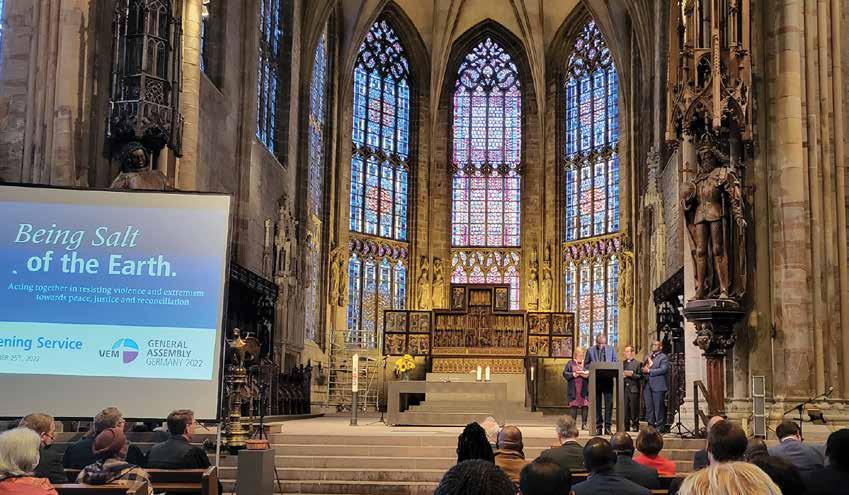
As they met to discuss challenges faced in this polarised world with inequali�es exacerbated by the pandemic and economic recession, Dr Keum spoke about how they are called to a ministry of peace, jus�ce and reconcilia�on. It is crucial for mission to be transformed into one that struggles against and resists forces – strengthening military regimes, spreading of extremist ideologies, populist ultra-right-wing groups, and resurgence of neo-cold war structures – that inflict pain and suffering in the world.
To par�cipate in God’s ongoing work of libera�on and reconcilia�on by the Holy Spirit requires us to discern and unmask exploita�ve forces, and challenge social, economic and poli�cal structures that divide and enslave people. This necessitates our commitment and willingness to work with all people involved in movements and ini�a�ves commi�ed to the causes of jus�ce, dignity and fullness of life for all.
In closing, he expressed his firm belief that UEM will con�nue to carry out this mission of struggle and resistance, and assured them of CWM’s accompaniment as a sister organisa�on in this missional endeavour.
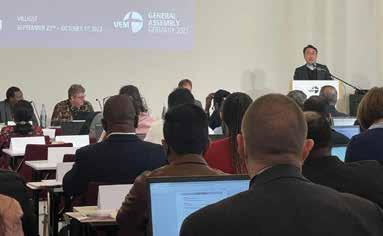
ECUMENICAL NEWS NOVEMBER 2022 24
he WCRC-CWM Women in Leadership
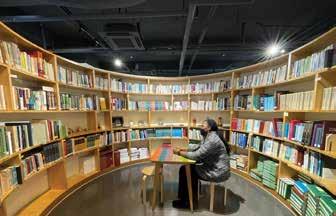
Roundtable Mee�ng held in Seoul, South Korea from 4-6 October 2022 was a �me of mutual sharing, solidarity, advocacy, and reflec�on for women naviga�ng patriarchal contexts. Par�cipants from Lebanon, Zimbabwe, Argen�na, Nauru, Kenya, Pales�ne, New Zealand, USA, Jamaica, Cuba, Taiwan, Switzerland, India, United Kingdom, Singapore, Jordan, Philippines, Nagaland, Zambia, Malaysia and South Korea collec�vely celebrated and honoured the legacy of the women pioneers who carved out spaces for female par�cipa�on in church and ecumenical leadership; lamented that their journey towards jus�ce is not yet over; but rejoiced that their story ended with the risen Christ.

The event commenced on 4 October with inaugural worship and communion by President of the World Communion of Reformed Churches (WCRC) Rev. Najla Kassab, and the Moderator of the Council for World Mission (CWM) Rev. Lydia Neshangwe, female leaders from the Global South who birthed and spearheaded this ini�a�ve.
“We’re very excited about the roundtable because both our organiza�ons preach communing together, partnering, fellowshipping and working together, and now we’re prac�cing what we preach by coming together to do all those things as women in leadership,” said Rev. Neshangwe. “As women we want to preach a message of collabora�on, not compe��on.”
Rev. Kassab and Rev. Neshangwe had discerned the need for a space for women in leadership and emerging women leaders to support each other and engage with the issue of gender jus�ce during this Kairos moment. In recent years, more women are in key leadership posi�ons including global ecumenical bodies, enabling the promo�on and con�nuity of this missional agenda. With a long history of engagement on the issue of gender jus�ce, this programme is part of both organisa�ons’ con�nued commitment to this cause.
Dr. Aruna Gnanadason, who had formerly directed World Council of Churches (WCC)’s global programme on Women in Church and Society, delivered the keynote address, followed by their exposure visit to Korea Peace Now! Women Mobilising to End the War, a global campaign to educate, organise and advocate for a Korea peace agreement. The women discussed white imperialism, peacemaking models, and making grassroots connec�ons a�er watching Crossings, a film about a group of female peacemakers crossing the Korean border.
Over the next two days, the women gathered for worship, and bible study on biblical women such as Ruth, Naomi, Mary, and Miriam based on the themes “lamen�ng with our sisters” (Day 2), and “rejoicing for our daughters” . The event also integrated group spaces for sharing, �me with their contexts, and papers from notable women ac�vists, theologians, and ecumenists.
It was also a �me for vision and imagina�on as they deliberated on what it means to be a female leader; important quali�es that should be upheld; empowering and mentoring young women as the next genera�on of leaders; their areas and understanding of power, and lastly, how the ecumenical world should benefit from the divine gi�s of women created in God’s image.
WCRC-CWM WOMEN IN LEADERSHIP ROUNDTABLE: A JOURNEY OF HONOURING, LAMENTING, REJOICING WCRC-CWM WOMEN IN LEADERSHIP ROUNDTABLE: A JOURNEY OF HONOURING, LAMENTING, REJOICING ECUMENICAL NEWS 25
Day 2 - CWM Programme Associate immersing herself in the many works of PCK women
“It is important to honour women as leaders, but we could also not forget the pain that women face, especially in the transi�onal �me of leadership between men and women,” said Rev. Kassab, “We hope this was a �me of strengthening, of envisioning, of sharing, and of looking forward to a be�er tomorrow.”
A�er closing worship by the Presbyterian Church of Korea (PCK) and Presbyterian Church in the Republic of Korea (PROK) on 6 Oct, par�cipants departed the mee�ng rejuvenated by bonds of friendship created and a stronger sisterhood enabled by a shared vision.
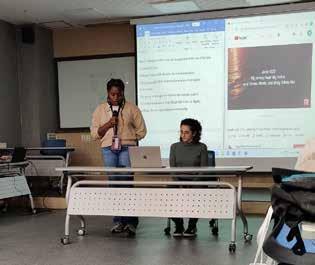
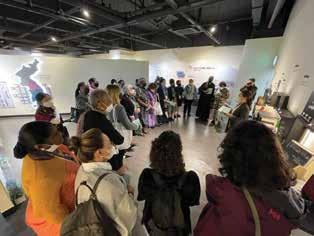
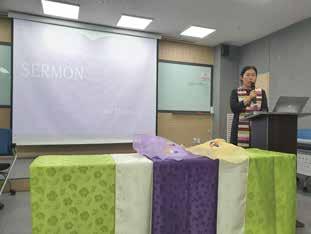 Philippa and Marah sharing a poem by Lamma Mansour during worship expressing lament, together
Participants visited the PCK Women’s Center for a guided tour
Philippa and Marah sharing a poem by Lamma Mansour during worship expressing lament, together
Participants visited the PCK Women’s Center for a guided tour
NOVEMBER 2022 26
Closing worship
CWM MODERATOR URGES YOUTH TO LEAD WITH TRANSFORMING LEADERSHIP AT ALL AFRICAN YOUTH CONGRESS
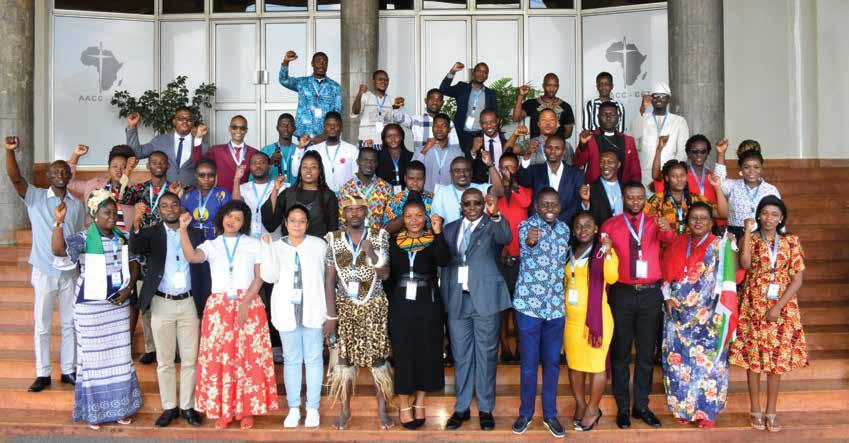
and mo�va�on to use their talents and gi�s to build a thriving con�nent.
Africa has the largest youth popula�on in the world, with more than 60 percent of the vibrant con�nent below 25 years of age. As this popula�on con�nues to rise, there has been uncertainty over the con�nent’s preparedness to tap into this resource for economic growth.
ev. Lydia Neshangwe, Moderator of the Council for World Mission (CWM) delivered a Goodwill Message to the All Africa Youth Congress in Pentecost Conven�on Centre, Ghana on 1 November 2022, where she exhorted the young people to “take your place and lead us with transforming and servant leadership”.
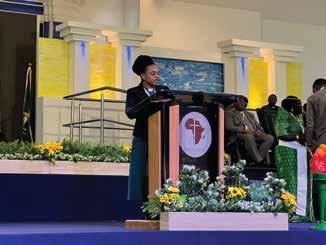
Calling this ini�a�ve of the All Africa Conference of Churches’ (AACC) a “viable space for energising young people into meaningful ac�on”, the CWM Moderator was among those who brought gree�ngs to the Youth Congress themed “Africa: My Home. My Future”, which was intended to increase awareness of the poten�al and opportuni�es for youth in Africa, thereby inspiring their patrio�sm
With the West indebted to Africa for its current prosperity, Rev. Neshangwe quoted Ghanaian female theologian Mercy Amba Oduyoye who said, “Our ancestors were busy helping the North when they began to develop their economies. Now the �me has come for us to concentrate on our development.” Affirming African Chris�anity’s “deep spirituality, intellectual capacity and commitment to diakonia and transforma�on”, she said that when it comes to mission, Africa should be mutually encouraging and suppor�ve to construct their future with their own hands and from their well. African Chris�ans must heed the divine mandate of unity and peace to achieve las�ng change, and overcome ethnocentrism and conflicts, she added.
ECUMENICAL NEWS 27
Rejecting the portrayal of Africa as a hopeless and miserable continent by the international community, the CWM Moderator, who is also a Minister of Uniting Presbyterian Church in Southern Africa (UPCSA), proclaimed, “We are gathered here to declare that Africa is full of dynamism and many hopes. Africa is a beautiful continent and known as the hometown of all humanity.”
The Congress was convened under four themes –“Youth and African Patrio�sm; Ac�ve Ci�zenship; Jus�ce and Peace; and African Dignity”, unveiled by the Presidency of the Republic of Ghana in a colourful opening ceremony that included the arrival of the climate jus�ce torch on the way to COP27. The climate jus�ce torch is an ini�a�ve of the Pan-African Climate Jus�ce Alliance, with whom AACC recently signed an agreement to cooperate on environmental jus�ce and ecosystem issues. The torch is aimed at engaging youth climate ac�vists and boos�ng their influence in climate jus�ce making decisions, among other objec�ves.
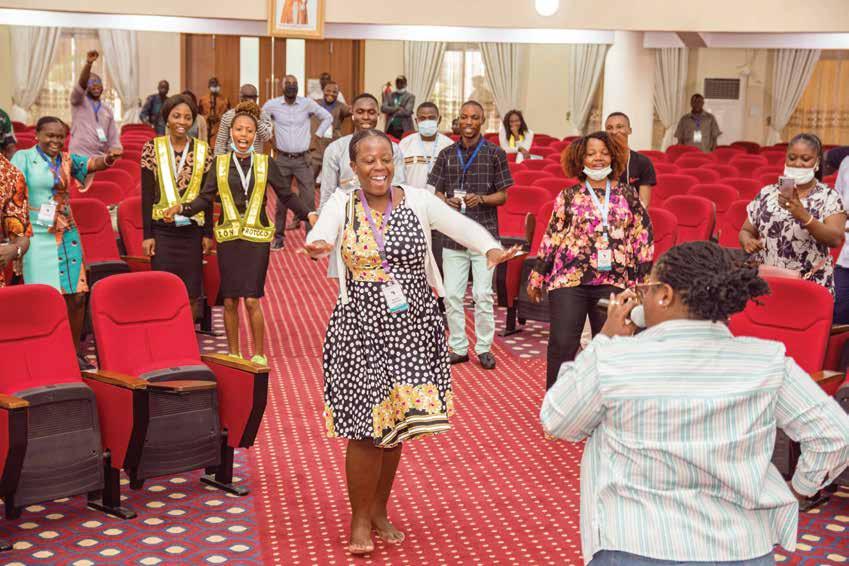
NOVEMBER 2022 28
viewpoints
29
LEGACIES OF SLAVERY
by Anthony Reddie
I want to begin this ar�cle by making reference to the John’s account of Jesus’ encounter with Pon�us Pilate – John18: 28-40. In the text we see Pon�us Pilate a Roman, colonial apparatchik in conversa�on with Jesus, a colonised and oppressed Jewish man. What is o�en missed in the spiritualised accounts of Jesus’ crucifixion is how this event speaks to the colonial framework of exploita�on of which transatlan�c slavery emerged.
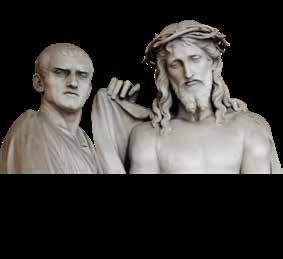
In historical texts like those of Noel Erskine’s book, en�tled ‘Planta�on Church’, the author shows how an early experien�al version of black theology, as expressed by enslaved Africans, created an important and essen�al epistemological break between the enormity of white dominated views of Chris�anity and the radical Judaeo Chris�an tradi�ons found in the scriptures. In the former, the central message of the Chris�an faith is sufficiently spiritualised, so that there is no link between lived experience and the teachings of the church, which explains why Chris�ans could enslave others, steal their land, or demonise their cultures, and s�ll think that they were fulfilling God’s righteousness. Enslaved Africans were able to rethink the basis of the Chris�an faith, to wonder if there was God’s will for the lived reali�es of those who were oppressed, be it in ancient Israel or 1st century Judea, 18th century Bri�sh Colonialism in the Caribbean, Africa or India or post-colonial Britain in the early part of the 21st century.
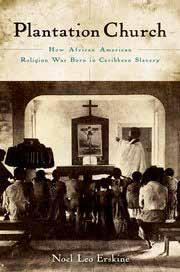
Yes, the colonial history of Bri�sh churches, especially the Church of England, founded on the construct provided by missionary Chris�anity was one in which whiteness, Bri�sh excep�onalism and no�ons of Manifest Des�ny all become conjoined to provide a religion that is a handmaiden of empire.
In the words of David Livingstone, the Bri�sh Empire was founded on the three ‘C’s,’ Commerce, Civilisa�on and Chris�anity. Chris�anity provides the philosophical and theological underpinnings for the quest for expansionist greed and the fulfilment of a so-called, “White man’s burden.” The key intellectual challenge, however, lies in the disjunc�on between the Bri�sh church and the state and the Jesus movement.
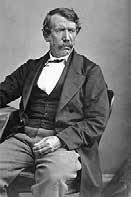
Making reference to John’s account of the lead up to Jesus’ crucifixion, one is tempted to imagine that Bri�sh Historical churches, like the Church of England and her smaller ecumenical partners, equate themselves with Jesus. A�erall, every Easter �me we read this text and the truth is White Bri�sh Chris�anity imagined itself to be aligned with Jesus, a colonised Jew in the midst of the Roman empire. But here is the rub, Pon�us Pilate represents Whiteness, not necessarily in terms of his epidermis’ I am not saying Pilate was a White man, but he was White in terms of imperial power of the colonisers. His encounter with Jesus is because, he alone has the power of life and death. He is the one who is represen�ng Caesar and the power of Rome. And yet, a colonial church, whose power was founded on empire and conquests in a huge act of intellectual escapology, is able to make a drama�c switch and believe itself to be aligned with a colonised Jew who is brutally executed for his an�-colonial forms of resistance.
James H Cone’s, magisterial, ‘The Cross and the Lynching Tree’, explores the rela�onship between the ritualised desecra�on of black bodies, in the context of lynching and a desacralized view of the cross, seen for what it was, a brutal example of state sponsored terror, meted out to poli�cal dissidents by an all-conquering imperial power. And yet, as Cone shows, most White people have managed to so spiritualise the cross that they see no rela�onship between the brutal reali�es of state sanc�oned persecu�on and the synonymous dismemberment of black bodies through the phenomena of lynching.
One of the major legacies of slavery has been Black theology. The roots of Black theology lie in the heart of a God of libera�on. A God who sides with those who are oppressed and marginalised. It was the greatest of all black theologians, Professor James Hal Cone, who creates the most sustained and systema�cally ar�culated rela�onship between enslaved and oppressed peoples and the Jesus of history who was executed at the hands of colonisers and imperials.
NOVEMBER 2022 30
One of his key insights, is this, he says, if Jesus was a colonised Jew, living under the aegis of roman occupa�on, and it is worth no�ng that hidden in plain sight, that the whole of the New Testament is wri�en against the backdrop of Roman Imperialism. If Jesus was a colonised Jew in 1st century Galilee, then his risen iden�ty as the Christ of Faith is an oppressed Black person, living under the aegis of White supremacy in the 20th century. If God is the same yesterday, today and forever and consistent in nature then Jesus who discloses God’s revela�on as an oppressed Jew, then he cannot be an en�tled White person who represents empire in the 20th and 21st century, that is inconsistent with God’s nature.
It is interes�ng therefore, the once Chris�anity became ensnared with empire post Constan�ne, an imperial church now ensconced in the heart of empire no longer wants to iden�fy the Romans as the villains because that would indict themselves because of their own form of imperialism. Bri�sh imperialism occupies people ’lands with as much ruthless efficiency as the Romans did. All of a sudden, it is no longer the Romans to be blamed for crucifying Jesus, now it is the fault of the Jews, which therefore, leads to over a thousand years of an�semi�sm.
But let us be clear, as the text reminds us, the Jews did not crucify Jesus, but the Romans did, and the presence of the Romans is analogous to the presence of the Bri�sh who colonised my ancestors in the Caribbean. The Bri�sh whose conquering exploits saw them occupy 24% of the world, had the largest empire the world has ever seen. And, it is worth no�ng, that that crea�on of empire then gives rise to what we now see in more benign terms, the so-called commonwealth, which is just the empire with another language.
In using the term Black theology, we mean a radical re-thinking of how we conceive of God, in Christ in the light of the on-going suffering and oppression of Black people in the world, run and governed by White people. Black theology iden�fies that the God revealed in Jesus as commi�ed to libera�on and freeing Black people and indeed, all people on the margins from racism and oppression. The roots of Black theology lie in the lives of enslaved African peoples on the so-called New World of the Americas. The enslaved Africans in the Americas and the Caribbean through their introduc�on to Chris�anity by White slave owners, latched onto the inherent libera�ve aspects of the Bible.

In par�cular, they were very, very keen to iden�fy with the decisive interven�on of God on the side of the oppressed in several parts of the scriptures, first notably in the Exodus narra�ve.
In the Exodus narra�ve God demands that Pharoah, ‘Let my People Go.’ So, God was not neutral or distant and the key text of black theology remain, I believe, in the triumphant early, classic wri�ngs by James H Cone and these are “Black Theology and “Black Power”, first published in 1969, “A Black Theology of Libera�on” published in 1970 and, I think s�ll the most important Black theology book ever wri�en, which is “God of the Oppressed”, first published in 1975. In all three texts Cone iden�fies God with the suffering and humilia�on of Black people and so when he asserts that God is Black, he is iden�fying God with those who are marginalised and oppressed, for whom the term Black has always been linked with nega�ve connota�ons and demonic imagery.
God in Black theology is the ac�ng force that overthrows injus�ce and releases the cap�ves from their oppression. Cone argued clearly that White people worshipped and idolised a White Jesus and this Jesus was not in fact the true anointed One of God, but actually the an�-Christ and the word used is “an�-Christ” because what he represents is death, colonialism, empire, the eleva�on of Whiteness and the oppression, marginalisa�on and the alleged inferiority of Black people. In our contemporary context, a White Jesus represents the power of White autocrats like Bolsonaro, Trump and Organ, all of whom have been supported by so-called White Chris�ans. This cult of Whiteness remains the ongoing toxic legacy of the epoch of slavery. The Black theology influenced research funded by CWM has been commi�ed to cri�quing and challenging this legacy. When I was aged 11, I remember being sat in front of a picture of a blue eyed, blonde haired, Aryan looking Jesus in Eastbrook Hall, Methodist Church, Bradford, West Yorkshire, I saw instantly an image that symbolised all the forces of White supremacy, that colonised 24% of the world, believing in this Jesus who looks like the colonisers that sanc�ons such ac�ons. This was not a Jesus who had my interests at heart and those of my ancestors, this is not a Jesus who has a heart in love for the people on the margins, who are consigned to the underside of history. Our work has been to correct this con�nued distor�on and usurping of the radical truth of God who has and con�nues side with those on the margins.
Professor Anthony G. Reddie is the Director of the Oxford Centre for Religion and Culture in Regent’s Park College, in the University of Oxford. He is also an Extraordinary Professor of Theological Ethics and a Research Fellow with the University of South Africa. He is the Editor of Black Theology: An International Journal. He is a recipient of the Archbishop of Canterbury’s 2020 Lambeth, Lanfranc Award for Education and Scholarship, given for ‘exceptional and sustained contribution to Black Theology in Britain and Beyond’.
31
BEING (HU)MAN: QUAMINA’S IMAGINED MONOLOGUE WITH ONESIMUS
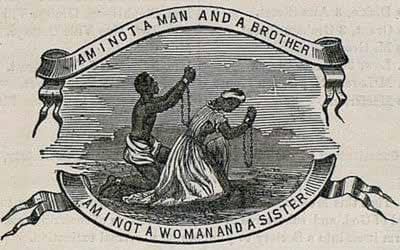 by Rev Dr Michael N. Jagessar
by Rev Dr Michael N. Jagessar
archives, silences and the silenced
Archives are as revealing as they are tricky, (un)revealing, and complicated spaces. Besides been curated, categorised, and o�en controlled there are the so-called silences one must reckon with. Silences may or may not be inten�onal. Poet Nourbese Philip suggests that “silence marks lack of neither language nor iden�ty. Rather, it is a form of communica�on that those who rely on the hegemonic world of private authority cannot hear”. There is, of course, ‘silence’ and ‘the silenced’! In my engagement with LMS/CWM archives and especially the trial of Revd John Smith of the LMS and the evidence given by the enslaved as carried by the Demerara Gaze�e, the reality of silences and the silenced is striking. One can make all sorts of deduc�ons and cannot help contempla�ng whether there was a strategy at work by the enslaved (rebels) deciding, through their coded language, that listeners, readers, and archivists should not be en�tled to everything, and that not everything is for the public archive.
the Quamina factor - contrapuntal voicing
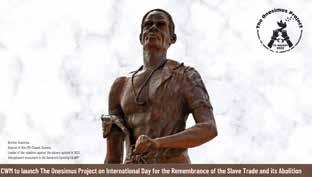
The foregoing preamble is my way into this reflec�ve piece (among other pieces in this issue): an explora�on in the context of the CWM Onesimus Project (TOP). Contempla�ng ‘silences’ and ‘silenced’, I wonder about imagining Quamina, one of the real martyrs of the Demerara Uprising, reading the Onesimus story from Philemon and doing his own ‘in situ’ reflec�on and monologue with Onesimus and with CWM in view. I am mindful that this a�empt towards agency for Quamina is mediated through my archival work but hope it highlights some of the issues before us, as well as its demands and the opportuni�es that TOP offer.
So let us hear from Quamina.
“The LMS story records me as Quamina, one of the many faithful converts at Le Resouvenir. And if you have taken �me to read carefully you would note that I was a deacon at the Bethel chapel. A closer look will reveal that I was a skilled cra�sman – a Cooper, with a key role in the bi�ersweet story of King Sugar. Of course, the archives and le�ers from Pastors Wray, Smith and the others would have represented me and my people as empty vessels who became somebody when we ‘found Jesus’. Did they mean that we became be�er slaves, more subservient to the cause of the interest of empire and its planta�ons? I had much more to say and offer, had I been given a fair chance to do so. Alas, on that day, now etched in the history of the LMS and then Bri�sh Guiana, I and the others became the sacrificial, expendable, and gibbeted heads/bodies so that ‘the interest’ may con�nue its rule”.
“I am especially thankful that the inheritors of the LMS finally managed to acknowledge their own sins and complicity in the terrible evil of cha�el slavery and its ongoing legacies on black bodies, lives, and a�erlives. And more so, to commit to invest in some key acts of repair. At the same �me, I am curious to hear more as to why CWM opted to name the legacies of this evil as ‘The Onesimus Project’. When I heard about ‘legacies of the Transatlan�c Slave Trade’ my heart felt ‘strangely warmed’. For, finally some serious and necessary work will be undertaken. In the re-naming I had hoped that one of the rebels of the Demerara uprising (or elsewhere) would have been remembered in the renaming of the project, as a first step
NOVEMBER 2022 32
towards restora�ve jus�ce. I thought that a postcolonial mission organisa�on with a commitment to libera�on and jus�ce, and with a rich heritage of context readings, would have opted to give greater agency to the experiences of the oppressed as an ideal star�ng/launching point. Star�ng points are very important for re-reading. Ironically, you my brother Onesimus has never been taken as the star�ng point for interpre�ng the le�er or even in the cra�ing of the narra�ve. It’s all about Paul’s voice and about Philemon.”
minding interven�ve saviourism
“You, Brother Onesimus, just like us, could hardly get a word in this le�er which is talking about you, especially returning you to your owner. Will the ‘interven�ve saviourism’ of Paul be enough to make your master Philemon experience some form of lightning conversion? Good inten�on aside, you Onesimus were never given any agency. And though being the reason for the le�er, you were only named for the first �me about halfway through it and remained voiceless throughout. Instead, readers are bombarded with the feelings of Paul and Philemon. What about your feelings, Onesimus? Are you not supposed to have these? Such was my experience as well and that of the enslaved in Bri�sh Guiana. The le�ers that our missionaries wrote back home to the LMS will confirm this. We used to read this Philemon epistle a lot back in our days of enslavement asking a whole heap of ques�ons as we wrestled with: ‘to rise up or not to rise up ‘, ‘to runway or not to runaway’, to bear our lot and expect greater rewards in another life (as the missionaries were teaching us) or to rebel in the present so that our progeny would have freedom’, and much more. What did you wrestle with Onesimus?”
“Tradi�on may carry the story-line that you became a Bishop of the City of Gaza and was eventually tortured and beaten to death for preaching about the beauty of celibacy. My ques�on, though, is what really changed for you upon your return to you master? According to Paul’s commenda�on, you who used to be ‘useless’ can now be ‘helpful’, ‘useful’ and ‘profitable’ for Philemon. This had a familiar ring for us on Le Resouvenir Planta�on, as profit and profitability was the story of our enslaved lives. With salva�on and our conversion, we proved to be more profitable and useful to our owners and the Church. We were all mini-Onesimus living up to that name being ‘useful’ and ‘profitable’.
“I struggled with Paul’s reasoning in sending you Onesimus back to the same ‘planta�on’ (site of terror) and to your owner. My costly experience is that the order could not suddenly be inverted. A brother, perhaps, but s�ll useful and profitable for Philemon. I remember my son Gladstone querying
why Paul insisted on making a dis�nc�on between spiritual slavery and physical slavery and Revd Smith offering a weak answer. He was then put in his place by Hilda who insisted that un�l Onesimus has an equal voice in the conversa�on, he will not even have poten�al to be a brother. Forgiveness and reconcilia�on sought here remained cheap! If anyone needed to answer, repent and be forgiven, it has to be Philemon for his enslavement of you Onesimus, and not you Onesimus for ‘running away’ from slavery. I wonder what Jesus would have made of all this, especially since his name was deployed to the broader reality of forgiveness. Where is the repair and repara�on? I cannot recall ever having a sense of being treated by Revd Smith or Revd Wray as a brother and partner in the gospel, even though we did most of the work for chapel ministry to thrive. Do not get me wrong: these were nice, commi�ed, and honest human beings. Yet somehow, we remained below their status. We can be seen, used, discussed, tolerated but never heard. What has changed? And if the subalterns can now speak, what is it they can say, are saying, and who are listening?”
our humanity
“Another among us, Mackandal cau�oned us to read the bible and hear the preachers with extreme suspicion. In that conversa�on, Assar and Bristol noted how we were cha�el or property and how Enlightened Europeans decided to �e slavery and rights together, relega�ng us and our progeny to non-existence and cha�el. This they then legi�mise, not through economics, but as a pre-requisite in the redemp�on of our African souls. So, in all the discussing of our fate we remained objects and hardly ever spoke for ourselves. How would you answer this Onesimus? Our enslavement and non-voice revealed how much the ideals of European Enlightenment and Missionary God-talk operated hand in glove, even deploying your story as an example for us. For these white people, we were not actually or fully persons or ‘accomplished’ humans. In their eyes we were humans, almost! This is our quarrel with Paul and those who suggest that he had your interest at heart. Your story reminded me of the fact that ‘Whiteness’ and/or ‘the Interest’ wanted a gradual or phased aboli�on on the premise that the enslaved could not be ready for ci�zenship. What has changed for my progeny? Just look at the ci�zenship test on Mother Island and the Windrush Scandal?
“Lest I divert too far, Onesimus, I am very curious to learn how your recep�on as a ‘brother’, by your former owner, turned out. My experience on the colonial planta�on, and serving as a Deacon in an LMS congrega�on we helped to build, is that there
33
was li�le interest in the enslaved Black people’s being, except our salva�on which was neatly cra�ed around a series of ‘parcel-out dualisms’. Isn’t it ironical that we were deemed cha�el in ma�ers of economics and then theologically as one in Christ with our oppressor in things spiritual? No wonder the instruc�ons from LMS (London) to their missionaries emphasized du�ful service through obedience, endurance, humility, and service to make us be�er slaves. This was a real struggle for Wray and Smith as well. Did they get that from Paul and your story? Underneath the sermonising were instruments of control at the heart of this theology. And to put icing on the cake: the rite of bap�sm – washing away of our dirty Black and Heathen selves - and the process of conversion sanc�oned such theologising. The funny thing is that bap�sm did not alter our status in the earthly life. We remained cha�el to obey our masters, but now through diligence, fidelity, and meek/mild submissiveness. In addi�on to making slaves be�er workers, Chris�anity served as an effec�ve tool against disloyalty and insurrec�on. Freedom? Well, Chris�anity effec�vely frees us from bondage of sin and Satan, not to burn down the oppressive Planta�ons. The Demerara Uprising and the over two hundred and sixty-three other revolts across the Caribbean tes�fy to this. This white magic of separa�ng of the physical from the spiritual was the neatest trick used to reconcile slavery with the Chris�an ethos and it is s�ll alive – even among some of my progeny."
equity not equality
“As I wrap up, I have one more ques�on for you Onesimus: do you think that Paul ever saw you as an equal? He did speak of you being of great service to him while he was imprisoned. Or was it that he saw ‘the promise of a quan�ta�ve progression of the poten�al’ human determined by him and his theological standards. I ask this as, in my case and that of the children of the enslaved of the Caribbean, it was evident that European/Bri�sh superiority (Whiteness) locked the preachers and their theology into a predictable pa�ern that made them see us only as inferior. Hence, in their preaching and so-called aboli�on rhetoric they were scared s�ff to speak of immediate emancipa�on! So, in 1807 (some years a�er I was gibbeted for public display along with the many others) the enslaved were only given back some of their brains with the slim chance that in 70 years’ �me, if they we were alive, they will be given a wage and be made free. We could not be trusted with freedom. To be black and free, suddenly anthropology and theology started playing games. White generosity suddenly wakes up and does a somersault: having granted us almost the quality of human, takes it back, terrified by the thought of even contempla�ng our humanity and have to concede that we are equal. Ontologically and legally my progeny remained
property. Right unto the end when slavery was abolished those Planters started to speak about the inviolability of their property. “Abolish but first re-imburse’: Because we were property/commodity compensa�on was possible! That’s how much Chris�an theology messed us up. This is also why ‘legacies’ is not primarily about the past. It is most importantly about all that con�nues to deny our people full and flourishing life.
restoring and repairing “So, brother Onesimus, a project named a�er you and linked to the experiences of my people and its a�erlives to this day (and across ethnici�es and regions) is long overdue. I am moved that the inheri�ng body of LMS can now break the silence, name the wrongdoing, and confess complicity in the colonial violence of missionary enterprise towards exorcising past, present, and future of the evil and its ongoing legacies. I am expec�ng much from the radical work of restoring and repairing. At their heart, repara�ons have always been about transforming broken socie�es into flourishing communi�es for all.
And as I sign off, I would s�ll be curious to hear your experience of finally being a ‘brother’ and especially your thoughts on what else is needed to ensure that our mantra about Chris�an love will actually change or reverse the arrangements of the current inequi�es in terms of ‘real estate’ and ‘power differen�al’.”
Your brother in Christ, Quamina.
NOVEMBER 2022 34
THE CWM ONESIMUS PROJECT
by Roderick R Hewitt
Introduc�on
When CWM made its historic iden�ty shi� in 1975/1977 from being the London Missionary Society(LMS) to “The Council for World Mission” the mo�va�ng factor was to give prac�cal expression to the missional impera�ve of building just rela�onships in the mission of the Triune God through the Church. CWM embraced the concept of “Partnership in Mission” to describe its new missional iden�ty and its ambassadors who were once called missionaries became known as Partners in Mission. One of the key biblical texts that was used to validate the missional shi� to Partnership in Mission was centred on the narra�ve described in Paul’s le�er to Philemon. The characters in the le�er were all challenged to grow up in full spiritual maturity and to move away from accommoda�ng and prac�cing unjust dehumanizing rela�onship in the family of the Church that contributes to the abuse of God’s image in any human being.
Facing up to the Legacies of Slavery
If CWM thought that it had broken away from its colonial mission past a�er nearly forty years of transforma�on, it was brought to its senses in 2017 with the recogni�on that its mission history through the LMS was tainted. This came through the profits from the Trans-Atlan�c Slave trade that provided some of the funds which sustained its mission. Although slavery had been legally abolished, it had mutated and remains at the heart of the contemporary dominant neo-liberal economic system. Accompanying this economic disorder are Afro-phobia, White supremacy, racism and xenophobia that remains rampant in all socie�es. In response CWM embarked upon a journey of global hearings with the heirs of those that were s�ll suffering from the Legacies of Slavery. This antecedent programme sought to address the roots of racialised inequali�es and injus�ces within the CWM family of church and the wider world. The programme named: “Legacies of Slavery” was mandated to uncover the sins and systems that CWM must seek to repent and repair. The impera�ve and urgency for restora�ve jus�ce and restora�ve repentance through tangible repara�on became the common cry of all the hearings. This means that CWM must return resources to those people and communi�es sinned against through racism and slavery. In response to this LOS recommenda�on CWM commi�ed £10million to the work of repara�on. It was also agreed that the CWM Board would engage in an Act of Apology and Repentance and scheduled for the Interna�onal Day for the Remembrance of the Trans-Atlan�c Slavery and Slave Trade on Aug 23rd 2022.

CWM Administra�ve Changes
A new CWM Board and a new General Secretary inaugurated a new administra�on and in June 2021 the Board a�er a review of the LOS programme mandated that its work be expanded and deepened in scope, impact, and inten�on. It was acknowledged that the scope of the work was restricted/limited to issues that arose out of emphasis on the Transatlan�c Slavery. Whilst this remains a priority for CWM that must receive urgent ac�on through repara�on, the new CWM Board stated that the programme in its current emphasis has not created sufficient space for some churches and communi�es to grasp and envision their place and role in the programme. There were also concerns about the overarching name of the project as “Legacies of Slavery” and that a more inclusive programma�c iden�ty should be considered.
The CWM Board approved a redesigned programma�c focus with four key priority areas:
1. Legacies of Slavery - Act of apology and repentance - Repara�on of vic�ms - Research and publica�on
2. Modern Slavery - Iden�fy modern forms of slavery - Racial jus�ce - Ini�ated by member churches and regions
3. Empowerment and Libera�on - Advocacy and movement, Training and community development - Alterna�ve theological educa�on
4. Transforma�ve Ecumenism - Re-imagina�on of ecumenism - Solidarity for libera�ng ecumenical movement
35
From Legacies of Slavery to The Onesimus Project
Rev Dr Roderick Hewi� was invited to become the chairman of the new Core Group that was named to manage the new format of the proposed programme. The Core Group met and reflected upon the programme agenda and requested for a name change. It was argued that the Onesimus model of Partnership in Mission that informed the CWM missional development in 1977 could s�ll serve as a potent signpost for the new CWM journey within a global context of socially and economically stra�fied socie�es built upon compe�ng pyramid class interest of the ruling, dominated and underclass. Onesimus’ experiences as an enslaved believer in Philemon’s household was shaped by economic interests that determined how his humanity was defined and treated. Profit meant more that his human iden�ty and dignity. In an environment in which the dehumanizing economic system of slavery was legal, even Chris�an leaders, such as Philemon and other members of the Church in his house, purchased persons who were normally those marginalized by race, ethnicity, social class, gender and religion within the Roman empire. Onesimus embodied the contradic�on/an�thesis between faith and prac�ce and demonstrated how Redeemed Inter-rela�onship can facilitate deeper and more transforma�ve praxis that results in systemic and ins�tu�onal changes. Paul’s le�er to Philemon called for a radical working out of the socio/economic and religious implica�ons within an unjust environment with vested interest within the system and structure. At the core of the le�er was the call for system change. Paul challenged Philemon and those members of the church within his house to place the subject of equality and freedom at the heart of Chris�an rela�onship within the dehumanizing context of empire. Based upon this reading of the text the Core Group recommended to the CWM Board of June 2022, a name change for the project from Legacies of Slavery to The Onesimus Project (The Onesimus Project: Sounding the urgent call to libera�on and transforma�on). This name change was accepted. The change does not mean a lessening of the commitment and urgency of repara�on that the LOS advocated for. Far from it! It remains an urgent priority that will receive access to in 2023 a�er terms of applica�on to the fund have been signed off by the Board.
The Onesimus Project Launch
The members of the CWM Board along with key invitees from regional ecumenical bodies and the CWM community along with the leaders of the CWM member churches within South Africa (UCCSA &UPCSA), members of the Bethelsdorp community (Port Elizabeth) and the members of the Onesimus Project Core Group, gathered for the launch on August 23,2022, the date recognised by the United Na�ons as the Interna�onal Day of Remembrance of the Aboli�on of the Transatlan�c Slave Trade and its aboli�on.
On August 22nd the local planning team arranged an exposure day for the delegates to the local museum that memorialised the history of the local people and their struggles against the oppression of apartheid and European colonialism. In addi�on, Chief Edmond Stuurman and members of his Council welcomed the delegates to the community and gave an overview of their struggles as members of the indigenous community.
The gathering of over 500 people congregated at the Van der Kemp Memorial Church in Bethelsdorp, a historic site where the CWM missionary worked with the indigenous people in the struggles against the colonialism and slavery. Along with the diverse people who gathered for the launch were hundreds of people who joined the event online through a live stream.
The CWM General Secretary, Rev. Dr Jooseop Keum, brought gree�ngs, thanked and welcomed all those present for par�cipa�ng in the historic event. He highlighted that the CWM’s journey of transforma�on from its forebear London Missionary Society (LMS) included complicity with colonisa�on, enslavement and racism. Represen�ng the Bethelsdorp community, Chief Edmond Stuurman welcomed the event a�endees, and challenged CWM and the Board to go beyond making bold statements and promises and to ensure that tangible results are achieved. He argued that the land and life should be restored to the na�ves and indigenous communi�es not only in Africa but all over the world.
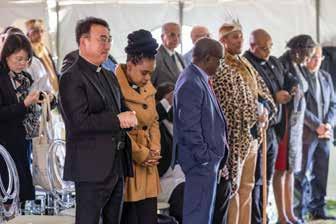
NOVEMBER 2022 36
CWM Moderator Rev. Lydia Neshangwe, joined by CWM Board of Directors Mrs Rose Wedderburn (Jamaica) and Elder Lim Kar Hor (Malaysia), led the Act of Confession and Apology in a liturgical form followed by a brief silence to honour the lives of those who suffered under colonial oppression.
Speaking to the gathering, the Chairperson of TOP core group, Rev. Dr Roderick Hewi�, emphasised that the Onesimus Project placed equality and freedom at the centre of its agenda in the four areas and seek to recover divinity in humanity. This focus on restora�ve jus�ce calls for urgent and tangible reparatory ac�ons. This necessitates CWM, her member churches and ecumenical communi�es to live sacrificial lives that struggle against all forms of oppression, which denies the fullness of life for people.
The formal launch of The Onesimus Project on behalf of the CWM Board was done by the Moderator, Rev. Neshangwe. The solemn event was interspersed with lively worship songs by choirs from CWM Africa member churches, UPCSA and UCCSA. Throughout the event, the slogan, “Release! Restore! Redeem!” became an emo�on that was intoned by the members. She also presented the Bethelsdorp Statement as the official document that will guide the CWM’s commitment to the Onesimus Project.
The Next Phase
The Onesimus Project’s core group members will intensify their work in bringing solid proposals, including the proposals for the budget. The next major tasks of the core group (2022-2025) is to provide the CWM Board and member churches with details on the four key components of the Project. It is recognised that those churches that par�cipated in the antecedent LOS programme had genuine expecta�ons that applica�on to the repara�on funds would have been in place from 2021. This delay has contributed to apprehension about the urgency of TOP to follow through with previous recommenda�ons of the LOS. The mee�ng of the next Core Group will establish criteria for the acts of repara�on to be presented to the next Board mee�ng. It is expected that each member church will iden�fy key missional areas of human oppression within their context to which they can partner with the TOP for global support.
Rev Dr Roderick R. Hewitt currently serves as President of the International University of the Caribbean in Kingston, Jamaica. He is a former CWM Executive Secretary for Mission Education and also served as CWM Moderator for two terms. He has also served as Professor in Systematic Theology at the School of Religion Philosophy and Classics, University of Kwa Zulu Natal, South Africa.
37
TRANSFORMATIVE ECUMENISM: A SIGNPOST AND A DESTINATION
by Deenabandhu Manchala
he world is indeed at crossroads, indica�ng a sharp moral divide. There are those who, no ma�er what con�nue their pursuits for power and wealth, and there are others- the resistance movements and alterna�ve voices that insist and aspire that the trends and pursuits of the present are unsustainable and must go if the earth and its people are to have a future. Likewise, there are those who con�nue to perpetuate their monopoly with their ideologies, policies and belief systems, and there are also those who dream of a new world guided by the values of jus�ce, equity and dignity for all.
It seems a decisive moment for churches also to discern their role in shaping the emerging world. Would they allow themselves to be preoccupied with issues of survival, con�nuity, and the patronage of the powerful and wealthy? Or would they choose to be with the restless others who are clamoring for a new world?

Transforma�ve Ecumenism is one such a�empt to ar�culate a theological alterna�ve both to the exis�ng expressions of ecumenism and also to the visions of the dominant powers of the world. It is informed by a series of conversa�ons among some concerned individuals engaged in ecumenical reflec�on and ac�on in different parts of the world for over ten years.
It presents itself as the result of a proac�ve engagement with the challenges and opportuni�es of a much-changed and rapidly changing world, more than a reac�on to the iner�a and irrelevance of past models and manifesta�ons. It does this by defining the features of ecumenism that inspire and enable authen�c and relevant expressions of Chris�an presence and par�cipa�on in the world today, and enables cataly�c par�cipa�on in the world for a just, inclusive and habitable future.
Transforma�ve Ecumenism and the Onesimus
Project
What does Transforma�ve Ecumenism have to do with The Onesimus Project (TOP) or the Legacies of Slavery? TOP is not a project merely about addressing the historical wrongs of the transatlan�c slavery and the consequent con�nuing disabili�es. It is also commi�ed to confron�ng and dismantling systems, ideologies and cultures that con�nue to perpetuate slavery in many forms, and expose
millions of disempowered people in many parts of the world today to a dehumanized existence. To be specific, while the first of the four components of The Onesimus Project – Legacies of Slavery addresses specific concerns of repentance and repara�ons, the other two – Modern Slavery and Empowerment and Libera�on, aim at enabling churches and their affiliates to become aware and to be responsive to thwart systems and schemes that legi�mize bondage, and instead nurture a culture of freedom shaped by the values of jus�ce and dignity for all.
The Fourth component – Transforma�ve Ecumenism presents itself both a roadmap – a voca�on of Chris�an discipleship, and a des�na�on - a theological vision resona�ng with the aspira�ons of many for another world of freedom, jus�ce, dignity and life for all.
As such, the Transforma�ve Ecumenism component calls our a�en�on not only to the historical wrongs, but also to the current global reali�es that con�nue to generate and sustain condi�ons for human bondage, and counter aspira�ons for freedom and jus�ce. The seemingly endless wars and conflicts, nuclear threats and war economies, soaring infla�on and danger of global recession, and a rapidly warming earth, have the poten�al to make millions vulnerable for exploita�on. The global reali�es of market-driven economies, repressive governments, exclusionary ideologies, the culture of fear and hatred of the other, and the increasing digital and technological hold on our lives, are already at work as the contemporary sources and drivers of bondage. These are global in their expanse, and so are their acceptance, influence and the overwhelming logic of the survival of the fi�est, posing hard challenges to the future of life and the earth.
Needless to say, we are faced with more intense and insidious sources of human bondage in the world today. These are: the trends of increasing tolerance for injus�ce and intolerance for dissent, the valoriza�on of aggression and violence than peace and non-violence; the promo�on of hatred and suspicion than love and understanding; the glorifica�on of wealth, privilege and power rather than common weal; and the absence of any moral force or ideology that guides our lives to be nurturers rather than destroyers of life.
NOVEMBER 2022 38
These expose the moral turpitude of our genera�on. It is not the finer, humane, progressive, inclusive, libera�ve, life-affirming values, a�tudes and pursuits, but the regressive and oppressive systems and tradi�ons built on base human ins�ncts that seem to guide us now and are likely to do so with the next genera�ons into a future for whatever it is worth. How do we, as people of faith, view and respond to these challenges?
Amidist these detrimental reali�es and trends, Transforma�ve Ecumenism draws on the sources of hope in our midst. The op�mism, courage and determina�on of people working together for jus�ce, rights and dignity of people, especially of those on the margins, for climate jus�ce, against human trafficking, forced migra�on, child labour and gender-based violence, and many such, and the explora�ons and contribu�ons of concerned individuals and collec�ves for a just and habitable future, are some such sources. The partnership of some Chris�an communi�es and organiza�ons with these crea�ve, life-affirming stream that promises hope, dignity, and peace, must also be acknowledged. Transforma�ve Ecumenism offers itself as a space and moment for such explora�ons and forces. As an ongoing ac�vity, it is open to new insights and perspec�ves toward a more holis�c understanding. As said earlier, this moment in �me presents itself as an opportunity for Chris�ans and churches, who find themselves confronted with a choice where they can repeat past modes of compromise with worldly powers or a�end to the new work of God springing up around them. For all such, Transforma�ve Ecumenism, as a signpost and a vison, offers some direc�ons.
Transforma�ve Ecumenism
In contrast to the tradi�onal and the familiar, the challenges of this moment require reimagining ecumenism as a new awareness of the interconnectedness of life, an alterna�ve vision of the world, a movement of partners for jus�ce, and a passionate voca�on that inspires crea�ve ac�ons toward a world that ensures life with jus�ce and dignity for all. Such an understanding of ecumenism is transforma�ve because it insists on the need to be transformed and to effect transforma�on as a way of par�cipa�ng in God’s mission for the world.
Transforma�ve ecumenism is an expression of faith that is grounded in the mission of the triune God unfolding in the diversity, dynamism, and interconnectedness of the created order. In its efforts to heal of the brokenness of the world, it draws on Christ’s presence in the experiences and visions of those pushed to the margins, and on the Spirit’s power expressed in struggle against the
forces of marginaliza�on. This inspira�on fuels ac�ons and partnerships for jus�ce and truth so that life in all its wholeness promised by God’s reign is possible for all.
Transforma�ve ecumenism nurtures a New Consciousness of Life by affirming the vast, diverse and beau�ful created order in all its intricate interconnectedness as God’s self-expression, wisdom and generosity. It asserts that knowing and affirming God is to live with this consciousness of life (Psalm 19). It announces that “the earth belongs to God” (Ps. 24:1) and invites all to be a part of God’s dynamic of life. It is thus a spirituality in ac�on that liberates the cap�ves, upholds truth, nurtures peace rooted in jus�ce, and inspires condi�ons for the celebra�on of life.
In contrast to the ideological orienta�ons of structures and cultures rooted in empires past and present, transforma�ve ecumenism offers a Vision of a New World by exposing and resis�ng greed, domina�on, control, discrimina�on, and oppression in any form and at any level (Mt. 20:26; Mk. 10:43; Gal. 3:28). It invites people to strive for a world that is shaped and led by the values of love, jus�ce, mutuality, and interdependence and by an organic bond with nature that ensures life for all. The impera�ve to “do jus�ce, love mercy, and walk humbly with God” (Mic. 6:8) obliges us to go beyond cumbersome ins�tu�ons, rigid structures, and imposed iden��es to be part of the new crea�on that God is birthing.

As an alterna�ve vision of the future, transforma�ve ecumenism is a Movement from Below. It inspires partnerships for jus�ce and truth by anchoring itself in theological reflec�ons and ac�ons in solidarity with movements for jus�ce, freedom, and dignity—especially for those on the margins and those in struggle against the forces of marginaliza�on. It asserts that transforma�on of society begins not according to the plans and schemes of the powerful and the privileged but with the visions and aspira�ons of those who are yearning for life (Mt. 5:6, 10).
Finally, and most importantly, transforma�ve ecumenism is a Voca�on of Living out Hope in Ac�on. It is a voca�on of discipleship that joins God at work in situa�ons of struggle for and celebra�on of life (Mt. 25:35–45). It resists systems, cultures, and prac�ces that deny life, dignity, and jus�ce for the marginalized; speaks truth to powers; and nurtures values and rela�onships that sustain and enhance life.
With these features as its goals, the Transforma�ve Ecumenism process within TOP hopes to be enriched by the experiences and perspec�ves of
39
those engaged in the work of the three components to ar�culate the features of inclusive, jus�ce-rooted, non-hierarchical and people-based expressions of Chris�an presence in the world today. While doing so, it also hopes to accompany them to be part of that stream of posi�ve and progressive change towards a world of freedom, jus�ce, dignity and life for all.
Rev. Dr. Deenabandhu Manchala, a Lutheran pastor and theologian from India, is a member of the International Core Group on Transformative Ecumenism. He has served as a programme executive at the World Council of Churches in Geneva, Switzerland (2000-2014), and as the area executive for Southern Asia in Global Ministries of the United Church of Christ and the Disciples Church (Christian Church), from Cleveland, Ohio, USA (2014-2022).
NOVEMBER 2022 40
RISE TO LIFE: A CALL TO END MODERN SLAVERY
by Sudipta Singh
The Interna�onal Day for the Aboli�on of Slavery on 2nd December, is a day of remembrance and recogni�on, an urgent call to ac�on. We must never forget the immeasurable suffering of millions of African men, women, and children under the evil of the transatlan�c slave trade. We honour the resilience of those who endured and pay tribute to those who sacrificed their lives in the universal quest for freedom. The racist legacy of slavery reverberates to this day.
According to the latest Global Es�mates of Modern Slavery (2022) from Walk Free, the Interna�onal Labour Organiza�on and the Interna�onal Organiza�on for Migra�on:
• 49.6 million people live in modern slavery – in forced labour and forced marriage
• Roughly a quarter of all vic�ms of modern slavery are children
• 22 million people are in forced marriages. Two out of five of these people were children
And while some may believe slavery to be a thing of the past, this evil con�nues to blight our modern world. Long a�er slavery was officially abolished, the prac�ce not only con�nues but thrives. Whether they are women in electronics or apparel sweatshops, children in brick kilns or on cocoa farms, or men trapped in bonded labour working on construc�on sites, millions of people globally are forced to perform labour through coercion, in�mida�on, or deceit. In a world of growing inequality and trade-offs between the haves and the have-nots, consumers, business and government are all part of the problem and the solu�on. While we have all become accustomed to fast fashion and cheap consumer goods, the affordability of these commodi�es o�en comes at the price of human exploita�on.
An�-Slavery Interna�onal defines modern slavery as when an individual is exploited by others, for personal or commercial gain. Whether tricked, coerced, or forced, they lose their freedom. This includes but is not limited to human trafficking, forced labour and debt bondage.
In some regions, ongoing conflict, poli�cal instability, and forced displacement are key drivers of modern slavery. Transforma�ons in the world of work, climate change, and migra�on increase the vulnerability of many people to exploita�on in others. From poverty to gender discrimina�on and inequality, addressing risk factors is fundamental to comba�ng and preven�ng modern slavery. Effec�ve responses to modern slavery must account for these drivers and risks if we are to achieve UN Sustainable Development Goal 8.7 by 2030.
• Of the 27.6 million people trapped in forced labour, 17.3 million are in forced labour exploita�on in the private economy, 6.3 million are in commercial sexual exploita�on, and nearly 4 million are in forced labour imposed by state authori�es
As per the report an es�mated 22 million people are living in a marriage they had been forced into, which is a 43% increase from 2016 figures. More than two thirds of those forced to marry are Women and girls who are at greater risk of sexual exploita�on and violence. More people in Asia and the Pacific were in forced marriages, but when popula�on size was taken to account, researchers found that forced marriage was more prevalent in Arab states. Covid19 has “exacerbated the underlying drivers of all forms of modern-day slavery, including forced marriage,” the report said.
Forced labour has increased by 11% to 28 million people since 2016, and almost one in eight are children, giving the issue “special urgency,” the report said. More than half of the children are in commercial sexual exploita�on, which involves trafficking crimes where the primary form of forced labour is in sexual services.
“Qualita�ve reports indicate that children can be subjected to severe forms of coercion and abuse, including abduc�on, drugging, being held in cap�vity, decep�on and manipula�on of debt,” according to the report. “Some of the worst abuses occur in situa�ons of armed conflict.” About 86% of cases of forced labour are found in private sector industries, including manufacturing, construc�on and agriculture, with Asia and the Pacific home to more than half of the global total, according to the report.

41
Slavery is an abhorrent prac�ce and while it is technically a crime under interna�onal law, it is important to realize that it remains a viable and profitable management prac�ce for business. Modern slavery, far from being an aberra�on, is a logical outcome of the way our poli�cal economic system is organized and its historical origins in the colonial enterprise. For example, colonial expansionist prac�ces of the Bri�sh Empire in the 1800s involved both land and resource appropria�on as well as permanent destruc�on of manufacturing capaci�es in the colonies. The “technological superiority” of the Bri�sh tex�le industry was established as much by technological advances as by a systema�c destruc�on of India’s indigenous industry involving innova�ve compe��ve strategies such as the severing of the thumbs of master weavers in Bengal, forced cul�va�on of indigo by Bihar’s peasants, and the slave trade from Africa that supplied co�on planta�ons in the United States with free labour (Banerjee, 2008). Just as historical slavery was an enabling condi�on of industrial capitalism (Cooke, 2003), modern slavery is an enabling condi�on of global neoliberal capitalism.
Several recent developments associated with the pandemic can be traced back to the overall design and opera�on of the global economy. Recent decades have been defined by a sustained effort by poli�cal and economic elites to depress wages, working condi�ons, and ins�tu�onal protec�ons, with a recurring emphasis on deregula�on, self-regula�on, priva�sa�on, subcontrac�ng, and outsourcing. Other popular strategies have involved moving—or threatening to move—ac�vi�es to other jurisdic�ons, and/or recrui�ng migrant workers who are compelled to work for less. These strategies have helped to create a global economy which is strongly predicated upon the vulnerability of precarious workers and migrants. Everyday abuses within this global economy do not necessarily stand out as excep�onal or unusual, because they are built into the logic of larger economic and regulatory systems. The main effect of the COVID-19 pandemic has been to exacerbate, rather than create pa�erns of vulnerability.
Modern Slavery deprives vic�ms of their most basic freedom: to determine their own future. Any work towards fulfilling the promise of freedom should be not only the pursuit of jus�ce, but also a restoring of what was taken away. The aim needs to be to not only put an end to this crime, but also to ensure that survivors can move beyond their exploita�on and live the lives they choose for themselves. The God who calls us into life and freedom is also a God who intervenes in history. Yet the interven�on of God is not neutral, it is not in support of the powers that be, but God’s interven�on is always destabilizing the inhuman systems and structures.
This interven�on upsets the status quo because it perceives history from the underside. It is this God who calls all crea�on into “Fullness of Life” and therefore any form of slavery is a denial of God of life.
We believe in a God of freedom who abhors slavery in any form and therefore the Church is called into the salvific work of Christ who sets the cap�ve free.
Chris�an faith proclaims that God entered the world in the person of Jesus Christ to save the world from death and destruc�on; and to offer life eternal. Wherever the forces of death and destruc�on are confronted and defeated, we experience God’s love because God is a God who not only authors life, but also protects, nurtures, and celebrates life. This love is not merely limited to the life of human beings; rather it is the love that embraces the en�re community of crea�on. As Churches and Chris�an mission agencies, our voca�on is to proclaim this Gospel of abundant life to our communi�es and to equip them to build life flourishing communi�es. Marginalized communi�es such as migrant communi�es, indigenous communi�es, women, climate refugees, and people of colour have been indoctrinated by the dominant narra�ve that their fate is pre-des�ned by God and there is no alterna�ve. They are told that dreaming new visions of alterna�ve life and existence is illegi�mate. They have learned to adjust to the unjust social reali�es. This is the context in which we are called to proclaim the Gospel of abundant life that is available in Christ Jesus. This Gospel of libera�on must become flesh through our ministries. The marginalized should be able to experience abundant life as they are enabled and empowered to confront the unjust structures and systems that con�nue to deny them life in abundance. We are called to accompany them in their Exodus journey through our programs and projects. When our programmes and other ini�a�ves empower them to become agents of their des�ny, we will be able to witness flourishing of life in our communi�es.
Abundant life is primarily a life where we reclaim our agency to design our des�ny. It is the libera�on from dependent self-forma�on to become new crea�on in Christ. Our iden��es are constructed by the dominant system. In a racist, patriarchal and classist world, certain lives are more precious than other lives. Certain lives—because of colour, caste, race, gender, and ethnicity—are considered as dispensable which can be sacrificed for “progress,” “development,” and “common good.” We are called to work with these communi�es who are constructed as “Other” to develop the courage to reclaim their lost humanity and to flourish their humanity as new crea�on and new iden��es. We are called to restore God given human dignity and freedom to all people who are trapped as Modern Slaves.
NOVEMBER 2022 42
RETROSPECT
43
by Michael N Jagessar
What shape(s) will the message of advent and Christmas take in the midst of a pandemic? In Britain, the government is keen to ‘save’ Christmas so that families have as ‘normal as possible’ their Christmas experience. What they really mean is saving the economy, retailing, and allowing families to have that traditional expected time together. The three reasons are related as ‘tis the season’ when spending increases by 25%. So, if December is spent in lockdown the economic impact would be terrible, not counting the votes! Sweet Baby Jesus with tinsel, flashing lights, Christmas cards, gifts, eating, and boozing are great for the economy. December may come for many with stables, cradles, lights, angels, shepherds, clean endearing animals, empty inns, carols, festivities and more. By epiphany in January the looming manifestation of unpaid bills, debts and depression will be the wake-up call, with the length of the debt shackle many would have to attend to for the rest of 2021. Faced with the pandemic, there has been a profusion of right-wing theodicies, explanations for suffering and evil, and much more. We see leaders purporting to be god-like. You know who they are. Yet people cannot survive on illusions, the myth of the immortality of nation-states, and with some political leaders prancing around like peacocks. Grief, pain, and death are real. The body literally and the body politic is unwell. We are in desperate need of saving!
Caught suspended between fear and hope, on the edge of a new day but facing formidable challenges it is easy to imagine our predicament as one of hopelessness. John, the Crier on such a landscape comes as a lone voice with the message that the Divine is not yet done interrupting people's lives for the health and well-being of a world that God still loves! God still favours to realise God’s purpose of doing marvellous things for all of creation. The season has become so commodified that we quickly forget that God becoming human commits God to mutuality, reciprocity, relationship, thriving/flourishing lives (incarnation) and commits us to the same.
No wonder the Crier’s message of repentance comes both as an interruption and a counterscript to an otherwise comfortable set of readings. For the festive season of fun, John with his fiery eyes, wild looking image, and extreme diet comes like a wet blanket to spoil our fun. Neither John nor Mary with her Manifesto chant of reversals (polished up as Magnificat) do not fit into the commodification of the season -- that even Churches have bought into. Like the prophets before and after them they named things as they were and dreamt of a different order. John was fearless, denouncing evil wherever he found it and calling all to ‘turn around’. There must have been something about this Crier that made people want to listen to him, even getting Herod worked up and squirming. The invitation to ‘turn around’ (repent) literally means a re-orientation, turning our lives and systems around. It is about going beyond the mind-set we have become locked into and to enter into a new way of seeing, relating and living.This calls for imagining a different world is possible (Mary’s Manifesto) and live it out. If we cannot imagine
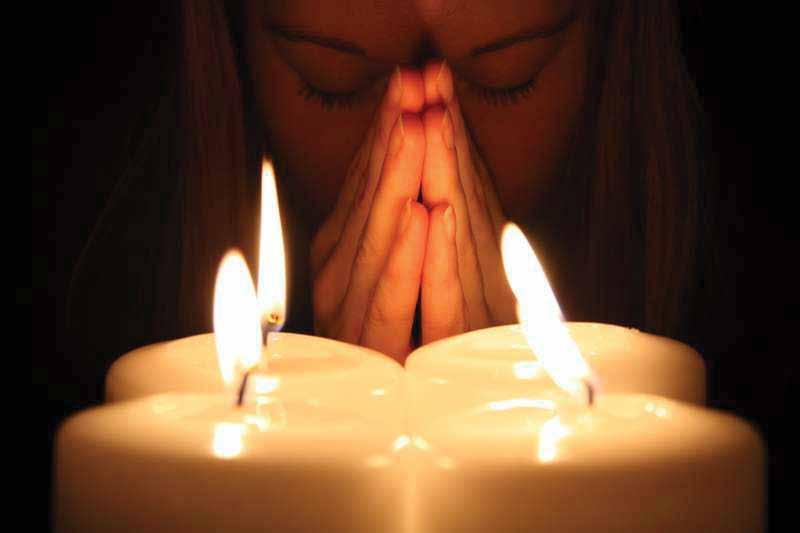
INSiGHT | December 2020 34 VIEWPOINTS | 44 NOVEMBER 2022 44
it, it will never materialise. So much around us and in us we have accepted as ‘normal’, ending up in our complicity with much that deny God’s offer of full flourishing life for all.
waiting with purpose
We are all waiting in expectation. I am waiting too. I confess, though, that the advent language and imagery terrify me. I cringe at the overuse and abuse of light and darkness: reminding me of the dark tribes and the heathens, from that place of total darkness in need of the shining bright Light. “The people who walked in darkness have seen a great light! Those who live in darkness and embody darkness need light! Imagine this repeated mantra drilled into our psyche over years and then try to understand how easily people of a lighter hues are privileged over those of heavier ones. Now consider why skin-whitening products are such a profit-making business. My terror is compounded not only by this ritual humiliation but the resulting internalisation. My receptors do a blip and long pause at such readings during this season. But this is not all: the imageries of the season from liturgies and lyrics of those “holy than other hymns/carols” ring in and perpetuate the notion of empire: Lord of Might; Thrones shall rest; King of Kings – Make Way, Make Way; He who Shall by Right all the Nations Possess; Everlasting Seat; The Race that long in darkness pined have seen a Glorious Light; His power increasing shall Spread; Him shall all the Tribes of Earth Obey; The Lord Makes Bare his Arms Through all the Earth Abroad. Many have drunk of this wine of intoxication and then reasoned their God-given right to shackle and lockdown others as non-human beings. Today priests of the empire offer freedom, democracy, and free market for the natives, then
steal all their resources. Stir up the power of your Love, O God and Come. Come Lover of the dead corners of the earth and the forgotten wretched of the earth! Consider this: how many in our “holy huddle” really expects Jesus to return? Would the Church really want Jesus to return? Such may be too bad for business: especially having to give up all the power, comfort, and security and be no more. Believe it or not – I am waiting for Jesus to return. Not that I think Jesus got it wrong the first time. I have lots of troubling questions for Jesus.
releasing into flourishing
God is interested in the quality of this life, in the flourishing of creatures living and breathing now, on this planet. This is God’s desire as embodied in that Child we celebrate. Our choices should reflect this desire, shifting the focus away from ourselves - to get ourselves out of the way and let the flourishing commence. Prepare a Way; Straighten the Curves of injustice; fill the valleys of fear, cynicism, and despair with meaning and full life; flatten those mountains of hindrances; change your crooked ways; let meaning and peace rule your lives – these are some powerful imageries for this journey towards flourishing life for all. No wonder the call of John is symbolically located by a river, by water. We are reminded of our baptism. Among the baptismal questions and promises is this one: “do you renounce evil?” or as I would like to put it: do you renounce the dominant script? The choice is clear but massively demanding. It has to be ‘yes’.The Jesus way of full flourishing life must mean release from the grasp of the powerful scripts. This is the witness we must embody. Do not be dazzled by the Christmas lights. There is room for all. Let there be life –flourishing life for all!
This article first appeared in the December 2020 issue of INSiGHT.

35 www.cwmission.org
45
TAKE A LOOK
The unbridled growth and increasing influence of mega-corpora�ons such as Apple and Amazon has given them power to be treated differently, to rewrite the rules on wages, taxes and laws along the way. Google and Facebook’s systema�c exploita�on of our data, and market-driven surveillance violate core dem ocra�c principles, and coupled by the blurring line between the state and mega-corpora�ons, a storm is brewing in both the U.S and Europe. Will the corpora �ons con�nue on this dangerous trajectory or do we s�ll have a chance to rein them in?

http://bit.ly/3OelHKx
The past decade has seen the rise of cyberspace armament, with digital mercenaries selling spy so�ware to authoritarian regimes and criminal hackers tackling targets to profit their clients. Priva�za�on of violence and war in the grey zone is a thriving business, replacing the role of armies in shadow wars when states do not wish to send their official armies into ba�le.
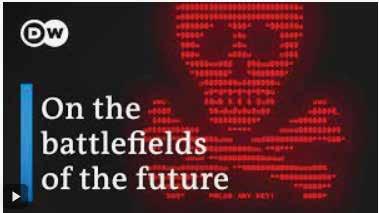
Having depleted its military resources in two wars, the U.S is opera�ng outside official war zones, with the U.S Special Forces now conduc�ng targeted killings using drones, hacks and surveillance technologies; Russia destablised Ukraine with digital weaponry and state-subsidised hacking.
Is the priva�za�on of violence ushering us into a world dominated by wars, with the lines between war and peace blurred?
http://bit.ly/3EFpWeY
The second series of United Reformed Church (URC)’s podcast explores Chris�an discipleship and mission and what it means to be Walking in the Way of Jesus today. Listeners will hear about climate ac�vism from Rev. Kate Gray; feminism by Philippa Osei and Victoria Turner; An�-racism by Karen Campbell, and on war by Rev. Jacob Bali.
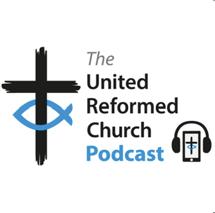
Episodes will be published fortnightly and can be accessed via Anchor, Spo�fy and other major podcast pla�orm by searching for “The United Reformed Church Podcast”.
https://anchor.fm/theurcpodcast
47
Council for World Mission Ltd 114 Lavender Street, #12-01, CT Hub 2, Singapore 338729 T (65) 6887 3400 F (65) 6235 7760 E council@cwmission.org W www.cwmission.org Company Limited by Guarantee Registered in Singapore Unique Entity Number 201206146Z Copyright © 2022 Council for World Mission Ltd. All Rights Reserved. Content may not be reproduced, downloaded, disseminated, published or transferred in any form or by any means, except with the prior written permission of Council for World Mission Ltd.





 Rev. Dr Jooseop Keum General Secretary Council for World Mission
Rev. Dr Jooseop Keum General Secretary Council for World Mission



















































 Philippa and Marah sharing a poem by Lamma Mansour during worship expressing lament, together
Participants visited the PCK Women’s Center for a guided tour
Philippa and Marah sharing a poem by Lamma Mansour during worship expressing lament, together
Participants visited the PCK Women’s Center for a guided tour







 by Rev Dr Michael N. Jagessar
by Rev Dr Michael N. Jagessar































